#not like game of thrones is one of the most watched/critically acclaimed shows of the 21st century… /lh
Note
new url! what does it refer to?
oh bestie trust me this is an OLD url, i’ve used this one at least twice in the past already!
this is like my main url, i change it every once in a while but in the end i always come back to this one lol
#also i find it hilarious that u have no idea what this references#not like game of thrones is one of the most watched/critically acclaimed shows of the 21st century… /lh#<- (the url refers to one of the main families in game of thrones whose patriarch is famously one of the shittiest fictional dads ever)#but yeah url change! i started reading a song of ice and fire lately and felt it was necessary to go back to my roots 🫡#and thanks for asking bestie!! love seeing u in my notes :))#ask#reply#sevdidntdie
1 note
·
View note
Text
Movie Night Made Easy: Using Apps for Streaming and Rentals on Your Android TV

Planning a movie night has never been easier, thanks to the plethora of streaming and rental apps available on Android TV. Whether you're in the mood for the latest blockbuster, a classic film, or an indie gem, there's an app to suit your needs. In this comprehensive guide, we'll explore the best apps for streaming and renting movies on your Android TV, and provide tips on how to get the most out of your viewing experience.
Why Android TV is Ideal for Movie Nights
Android TV is a versatile platform that supports a wide range of apps, providing users with access to an extensive library of movies and TV shows. With its user-friendly interface and powerful features, Android TV makes it easy to browse, stream, and rent content from the comfort of your home.
Key Benefits of Android TV for Movie Lovers:
Extensive App Library: Access to numerous streaming and rental services.
High-Quality Streaming: Support for 4K, HDR, and Dolby Atmos for an immersive viewing experience.
Voice Search: Quickly find movies and shows using voice commands with Google Assistant.
Customization: Personalize your home screen with your favorite apps and content.
Top Streaming Apps for Android TV
Streaming apps offer a vast selection of movies and TV shows, often included with a subscription. Here are the top streaming apps you should consider for your Android TV:
Netflix
Netflix is a household name in streaming, offering a wide range of movies, TV shows, documentaries, and original content. With its intuitive interface and personalized recommendations, Netflix is a must-have for any movie night.
Key Features:
Extensive Library: Thousands of movies and TV shows across various genres.
Original Content: Exclusive access to critically acclaimed Netflix Originals.
Multiple Profiles: Create profiles for different family members to personalize recommendations.
Offline Viewing: Download content to watch later without an internet connection.
Amazon Prime Video
Amazon Prime Video is another popular streaming service that offers a diverse selection of movies, TV series, and exclusive content. Prime members also enjoy additional benefits like free shipping on Amazon orders.
Key Features:
Wide Selection: Access to a large library of movies and TV shows.
Exclusive Content: Watch Amazon Originals and exclusive releases.
Additional Channels: Subscribe to premium channels like HBO, Starz, and Showtime.
X-Ray Feature: Get behind-the-scenes info and trivia about the content you're watching.
Disney+
Disney+ is the go-to streaming service for fans of Disney, Pixar, Marvel, Star Wars, and National Geographic. With its vast collection of family-friendly content, Disney+ is perfect for movie nights with kids.
Key Features:
Iconic Movies and Shows: Enjoy beloved classics and new releases.
Exclusive Series: Access original series like The Mandalorian and WandaVision.
GroupWatch: Watch movies and shows with friends and family virtually.
Download Option: Save movies and shows for offline viewing.
Hulu
Hulu offers a mix of current TV shows, movies, and original content. With its live TV option, Hulu is a great choice for those who want both streaming and live TV in one app.
Key Features:
Current TV Shows: Stream episodes of popular TV shows shortly after they air.
Original Series: Enjoy exclusive Hulu Originals.
Live TV Option: Watch live sports, news, and events with the Hulu + Live TV plan.
Personalized Profiles: Create up to six profiles for tailored recommendations.
HBO Max
HBO Max combines HBO’s premium content with additional movies, series, and originals. It's a great app for those who enjoy high-quality dramas, documentaries, and blockbuster movies.
Key Features:
HBO Originals: Access critically acclaimed series like Game of Thrones and Succession.
Blockbuster Movies: Stream popular movies and recent releases.
Curated Collections: Explore collections handpicked by HBO editors.
Max Originals: Enjoy exclusive series and films produced for HBO Max.
Top Rental Apps for Android TV
If you prefer renting movies rather than subscribing to a streaming service, there are several great rental apps available on Android TV. These apps allow you to rent or buy individual movies, giving you access to the latest releases.
Google Play Movies & TV
Google Play Movies & TV offers a vast selection of movies and TV shows for rent or purchase. The app is integrated with your Google account, making it easy to access your library across all devices.
Key Features:
New Releases: Rent or buy the latest movies and TV shows.
Watch Anywhere: Access your purchased content on any device with your Google account.
High-Quality Streaming: Support for 4K UHD and HDR.
Family Library: Share purchased content with up to five family members.
Vudu
Vudu is a popular app for renting and purchasing movies and TV shows. It offers a wide range of titles, from new releases to classic films, and often features special deals and discounts.
Key Features:
No Subscription Required: Pay only for the movies and shows you want to watch.
High-Quality Streaming: Stream in up to 4K UHD with Dolby Vision HDR.
Disc to Digital: Convert your physical DVDs and Blu-rays to digital copies.
Deals and Discounts: Enjoy frequent sales and promotions on popular titles.
Apple TV
Apple TV offers a comprehensive selection of movies and TV shows for rent or purchase. With its sleek interface and high-quality streaming, Apple TV is a great option for movie rentals.
Key Features:
Extensive Library: Rent or buy a wide range of movies and TV shows.
High-Quality Streaming: Support for 4K HDR and Dolby Atmos.
Family Sharing: Share your purchases with up to six family members.
Apple Originals: Access exclusive content produced by Apple.
Tips for Enhancing Your Movie Night Experience
To make the most of your movie night, consider these tips:
1. Set Up Your Home Theater
Create a comfortable viewing environment with a high-quality TV, sound system, and seating arrangement. Dim the lights and ensure your screen is at eye level for the best experience.
2. Use a High-Speed Internet Connection
A fast and stable internet connection is crucial for streaming high-definition content without buffering. Consider upgrading your internet plan or using a wired connection for optimal performance.
3. Customize Your Android TV Home Screen
Organize your favorite streaming and rental apps on your Android TV home screen for quick and easy access. Customize your settings to receive personalized recommendations and updates.
4. Take Advantage of Free Trials
Many streaming services offer free trials for new users. Take advantage of these offers to explore different platforms and find the one that best suits your preferences.
5. Use Voice Search
Utilize Google Assistant on your Android TV remote to quickly find movies and shows. Voice search saves time and helps you discover new content without scrolling through menus.
Conclusion
With the right apps and a few simple tips, your Android TV can transform your movie nights into a seamless and enjoyable experience. Whether you prefer streaming or renting, there are plenty of options available to cater to your preferences. Explore the top apps mentioned above, set up your home theater, and get ready for countless hours of cinematic entertainment.
0 notes
Text
Should I watch The Walking Dead again?
I was a huge, I mean, H-U-G-E huge, fan of The Walking Dead. I remember binge-watching the entire first and second season even before binge-watching was a thing.
The internet connection was poor back in those days so I had to wait days, literally, DAYS, before the entire season finished downloading. I'd then spend entire weekends watching every episode back to back. I remember the opening theme music playing in the back of my subconscious mind for months on end. I loved the series that much.
This was me after watching entire seasons in one go.
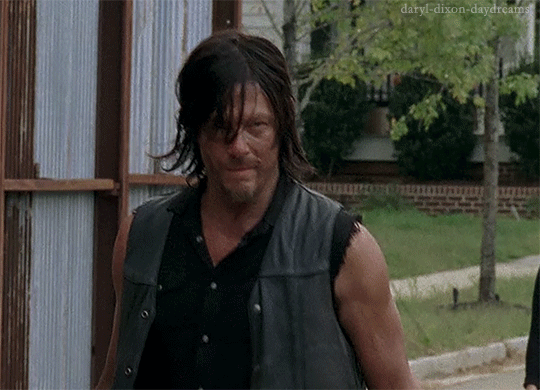
However, somewhere along the lengthy ride of season 4 or 5 (I really can't remember), I began losing interest. What started as one of TV's most captivating stories began to feel like an elastic band on the verge of tearing apart. I remember hating The Governor so much that I would want to skip entire episodes just because I hated his guts.
Eventually, I stopped watching. A pattern emerged where the group would settle down in a place, begin civil war among themselves, invite the zombies so they can help tear the place apart, causing the group to leave their temporary home behind before starting the whole cycle again.
If the comments section on The Walking Dead's official Facebook page is any indication, I'm not the only one who felt this way. Many people gave up on the show after a few seasons. But the hype never quite died. I still see TWD coming up on the news and the newsfeed every once in a while, especially when there's a new season and season finale around the corner.
Now, apparently, there's a final season out there. Since I don't remember anything after the first season, if I had to quench my thirst for the renewed interest in the show, I would have to start at season two and watch 9 long seasons to get up to speed.

That's a big commitment, one that usually keeps me away from getting into critically acclaimed shows like Game of Thrones.
But I'm thinking of giving TWD another go. I don't think I'll like The Governor anymore than I did the last time. But my language knowledge has improved, and I'm sure I'll discover new things that I might have missed the first time around.
I'm still undecided on whether to start this long journey of 10 seasons of The Walking Dead again. They're on Netflix, so I don't have to download anything or keep track of where I am, which is a big reason why I pay for the streaming services.
I'm not looking forward to meeting again the likes of Lori or the Governor, nor am I thrilled for the ride on the elastic band of episodes. However, because I'm bored and I need something at every meal to watch without paying too much attention, I'm thinking of giving it another go.
What do you say? Should I watch all seasons of The Walking Dead again or should I just rely on recaps to binge-read all 10 seasons before heading into the final one?
6 notes
·
View notes
Photo

Entertainment Spotlight: Mina Sundwall, Lost in Space
Best known for her starring role as Penny Robinson in the critically acclaimed Netflix series Lost in Space, Mina Sundwall landed her first 'role' at age 8 months as a kidnapped baby. On the film front, she starred in Freeheld, Maggie's Plan, #Horror. Mina also had a guest turn as in Law & Order: Special Victims Unit. She was born and raised in New York City, but being half Swedish and half Italian, she also spent a part of her childhood in Europe. When not working or in school, Mina is an avid singer song-writer. Mina took the time to answer some of our questions about herself and her experience on Lost in Space:
Without any spoilers, what scene or episode from Lost in Space season 2 are you most excited for fans to see?
As far as Penny is concerned, people have definitely reached out letting me know that Pennjay HAS to live on through season two…. And it most definitely will. There is a scene between Ajay and I that starts happy, then gets awkward and cute, then scary, then life-or-death, and then…. I can’t tell you how it ends, but it was one of my favorite scenes of the whole season. I love doing scenes with Ajay, and it seems that fans have caught on to the hilarity of our friendship and I’m excited to see what they think of our new adventures.
Other than that, I can’t tell you details about Episode 10, but I know that it will get a huge reaction from fans! It was so emotional to shoot, and it is even more emotional to watch.
How do you get into the mindset to play Penny?
First and foremost, I start with a good parent-sassing. My parents have been submitted to many early-morning sessions. In the 6 months we shoot a season my eye-roll ability is polished by the day, together with my one line-comebacks.☺
More seriously, when it comes to shaping Penny’s character and her arc through a season, I spend time paying attention to the environment around her and the details that inform her world. I create stories in my mind for all of the bits of life that are not ‘on camera’. As Meisner said “acting is reacting,” and a lot of Penny’s behavior comes from the situation she’s in. What has she had for lunch? Or maybe she’s cranky because she didn’t have lunch. What music she likes? Music is very important for me and builds a mood. How does it feel as a teenager to constantly believe you aren’t good enough? To feel lonely, and out-of-place? I think I know some of that from personal history. In a way I build her character from the outside-in.
On a more physical note- this season we had a bunch of stunts. Ignacio taught me to eat hearty foods before our physical work. So, part of my prep is…. chugging avocadoes!? In a sense that feels very Penny.
Do you have any fun facts about the filming of Lost in Space season 2 that fans would be surprised to know?
There is a long sequence in episode 1 with the all of us sailing the Jupiter through a storm, shallow waters and on rocks and it is amazing to see the coherency of the full scene because almost none of the physical spaces are real. The top of the Jupiter where we stand was built as an outdoor set on scaffolding in a winery outside of Vancouver and all around us were beautiful fields and we could see trains in the distance. The inside of the Jupiter was a set in a completely different location and many of the water splashing scenes were done indoor in studio with water cannons shooting at us. And it’s amazing how the editing, lighting and digital effects are able to smooth the differences and create this one illusion of space and time that allows us to suspend our disbelief and enjoy the full creative ride.
If a theme song played whenever you entered a room, what song would it be?
Oh, I did a Buzzfeed quiz on this once. I got “Born This Way” by Lady Gaga. I mean, I’ll take it as a complement!
Describe a typical day on set.
Wake up - coffee – drive to the studio – coffee – hair and make-up - coffee - get dressed - coffee - block a scene - coffee. And that’s just the first 2 hours.
My moment of Zen is always in hair and make-up. I love to sit and have my hair touched. Sometimes it comes with a little scalp massage… it’s my favorite part of the day.
When we start shooting it’s a mix of moments where we are all focused and on set, with moments where we goof around, and that repeats itself for 10-12 hours every day. While we were filming the two seasons I was also still in high school, so Max and I also had to study for a minimum of 3 hours every day, usually more, in between scenes.
The best part is lunch all together, especially in warmer days when tables are set outside on the studio lot and the cast and crew is eating and relaxing together.
When we film the show it becomes our life, every day. And I couldn’t be happier about it. This family, the crew, the stunts, the sets, the locations, the scripts, the days (long and short). I love it.
How would you explain the plot of Lost in Space to a five-year-old?
This super smart family, their friend the smuggler, and a crazy lady have a mission to get to a new world away from Earth, but they get attacked! And now they’re lost on another planet with a Robot. They are trying to find a way to get back to everyone else and they ask the Robot for help. It’s crazy.
What’s the funniest photo that you have on your phone (either share or describe it)?
Oh I’ve got a couple of good ones. Here are some of my favourites:
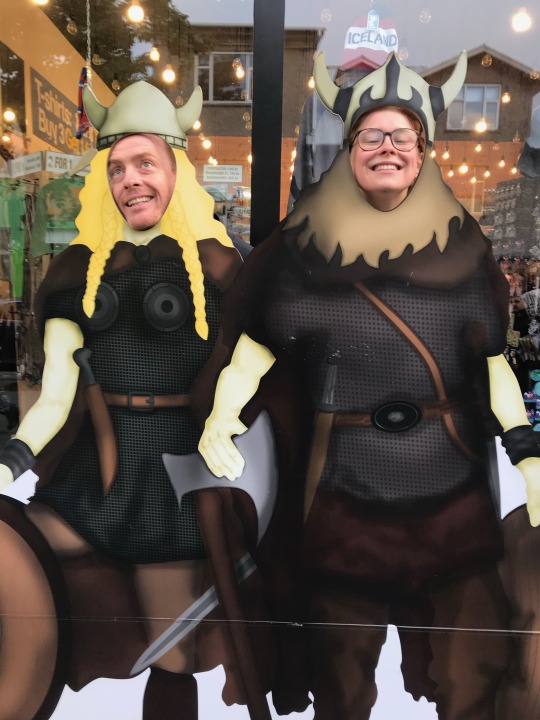


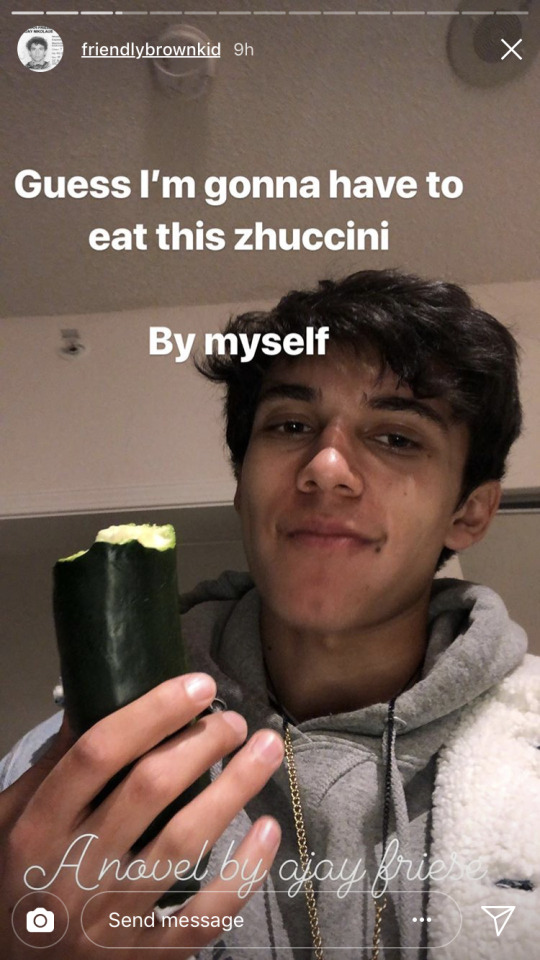
If you could have a conversation with Penny, what would you ask her?
I would want to know why she never spoke up about not wanting to leave earth. Does she miss her friends, or any one in particular? Where does her passion for writing come from? Did she just discover it? And does she ever feel like cutting her hair very short (because I want to so I hope she does!!)? Would she like Game of Thrones, or is she more or a Riverdale kind of girl?
Did you do any kind of research or training to prepare for your role in Lost in Space?
I did! My biggest challenge in ‘becoming’ Penny was the fact that she often speaks in one-liners, possibly interrupting someone else’s conversation, or sharing opinions that make other uncomfortable. And those one-liners are a representation of her insecurities, her fears, her hopes so they are very loaded, and I wanted them to feel loaded, not simple sass. Penny is very deep and as a writer she has the ability to condense a lot of emotions in a few words, and I needed to show that. And less is often harder than more, so I spent a lot time studying subtle performances and actors able to condense multiple, often opposed emotions into few simple words or gestures. None of it might be visible but it was an incredible tour-de-force.
And then my dad sat me down and gave me a beginner’s Sci-Fi films education, listing every sci fi movie ever made… just because he could…and what is special about each just in case someone asked me. I remember maybe five total, but it was there at some point.
If you could do a crossover with any other property, which one would you pick?
Oh The Crown. I would love to see what happens when Queen Elizabeth gets lost on a planet.
Thanks for taking the time, Mina! The second season of Lost in Space premieres on Netflix on December 24th..
1K notes
·
View notes
Note
..I was talking about Game of Thrones actually, and the MCU to a lesser degree, but yeah, I suppose what you said can apply to other shows too
Oh yeah for sure. Just Supernatural is fresh in everyone’s minds and GOT ended midway through last year (which honestly feels like it happened 14 years ago). But yeah I figured you could have been referring to almost anything really, which is why I used different examples for some shows. Many of my examples 100% apply to Game of Thrones.
But also, with shows that get a bad finale, it’s almost always 99% of the time predictable. GOT was bad long before its season finale. It stopped wrapping up its storylines, it always had issues re: the writing, and there was kind of spectacular denouement over its last season in particular in quality. I think in those cases, people are willing to forgive shows an awful lot if they’re attached to certain characters etc. But I don’t think many people were surprised the series had a terrible wrap up. (Maybe that made people angrier, idk).
But Benioff and Weiss are also pretty famous in interviews for honestly being arrogant shits who just don’t care about their audience and genuinely believe viewers are wrong if you don’t love what they do. They’re a great example of the creators just not caring about the audience that disagrees with them.
Also Game of Thrones is an excellent example of a show that meets more than one of the criteria I listed in the post: They fucking sailed that ship on bad press. They had the MOST viewers during their WORST and worst rated and least critically acclaimed season. Like, people wanted to watch that clusterfuck for various reasons, so like in terms of viewers which = more money from advertisers = more money for all, they were making so much bank off a bad show.
Yeah, I doubt they felt at all beholden to anyone after that. They literally had their own proof that they could make hot baked shit and more people than ever before would flock to them. Sometimes a show just sails on bad press and hate. Just like winter was once coming, spinoffs are coming, and are still in the works. They not only made money off that finale, they’re going to make more money off it in the future. The more people yell at them, the more folks will turn on their screens to see what’s so terrible about it.
And a lot of those people will keep watching.
I don’t really pay attention to MCU television for a lot of reasons (you said shows in your original post, not movies, so I assume you just mean the TV properties, but I’m going to talk to about the movies for a bit) - but I know they’ve had fraught issues with staff turnaround. And almost half of their shows are victims of Netflix’s policy.
The MCU movies managed to stay fresh by just constantly rotating their creative teams and in many cases their main cast (though I don’t think it was a coincidence that the last Avengers with like, the legacy cast, limped to the finish line, Endgame still made more money than the other Avengers films (WAY more - like a billion dollars more); bad press means nothing and no one in the industry would consider those films a financial failure.)
The MCU Netflix series (I think all of them) obviously fell prey to Netflix’s ‘two seasons rule.’ They’re actually really classic examples of it. That’s why most of their series finales are extremely open-ended and don’t resolve anything. Agent of SHIELD simply ran too long, but I can’t speak for the others. Idk what fandom thought of those finales. I’m not sort of aware of as much durm und strang over those finales over say - Game of Thrones or Supernatural.
But yeah, pick a show, pick any show with a terrible series finale, and at least one (if not more than one) of my examples will generally apply. Which sucks but just... yeah.
I can’t think of any long-running show whose quality didn’t significantly drop long before a bad series finale. Game of Thrones meets those criteria too. Like, it was coming, people knew it was coming. These finales never come out of nowhere. The show was letting its viewers down before then; it’s just a lot harder to forgive something terrible when you’re left with a bad taste in your mouth and no promise of a future episode that gives you hope it might get better.
#asks and answers#pia on media studies#pia on media#i was definitely NOT just talking about supernatural in my response lmao#it's just the most obvious current example#i was actually thinking of game of thrones#when i was referring to how bad press can sail a show#and also how sometimes the creators are just bitter and arrogant and resent their fanbase#Benioff and Weiss are *excellent* examples#of creators who just do not care about anyone#who does not love what they do#they are not open to constructive criticism basically lmao#and they have no reason to be#when you look at viewership vs. quality#Anonymous
20 notes
·
View notes
Text
“It’s not you, it’s me” (2/2)
The first part of this blog is dedicated to critically acclaimed TV series that I just couldn’t watch. It’s not for lack of trying, I promise, but I just couldn’t get into it.
Westworld (2016 - Present)
This is one of those shows that’s been on my list for ages. It is produced by HBO, which is probably the studio I trust the most for the quality of its series catalogue. Moreover, I’ve heard a lot about it from friends that generally have similar taste to me. I also most of the time enjoy science-fiction and I am not opposed to westerns, and the show being a blend of the two, there’s really no reason why I shouldn’t give it a try.

The show is set in the future, in a theme park recreating the Wild West. The park is populated by androids which are available for the guests to play out all their fantasies with, without thinking of moral consequences. Like Peaky Blinders, Westworld has also received great critical acclaim, and numerous awards and nominations. It’s been renewed for a fourth season by the channel, proving its success with audiences.
But as we say in France, “le coeur a ses raisons que la raison ignore” loosely translated as “the heart doesn’t give a damn about what's rational or not”, and the pilot of Westworld just wasn’t attractive enough to me (I know, how shallow). I mean sure, the actors are good, the universe is intriguing, and the introduction sequence is beautiful, but there is just something not working for me. Maybe it is the slow pace, or the abundance of characters, or the plot itself that confused me more than anything else. Maybe I just wasn’t in the mood the day I decided to watch it : after all, I went through all of Game of Thrones, and loved it, which is probably as - if not more - complex.
Part of me thinks I should give it another chance, especially considering that a fourth season is coming soon, so if I do enjoy it after all, I know this is guaranteed entertainment for a long time. But I also think that the ship has sailed. The hype is gone, at least for now, and there’s no immediate incentive for me to hit that play button again.
3 notes
·
View notes
Text
out of my league // tom holland
Pairing: Tom Holland x Critic! Reader [I use female pronouns]
Warnings: swearing; eventual fluff; angst; hurt/comfort; a little bit of cliche because come on.
A/N: Hi, everyone! With how disappointed I am with Game of Thrones ending, and for my love for Tom Holland, I thought why not mix the two? So I wrote this is a sort of spur of the moment thing, where the reader is a critic and Tom Holland is well... Tom Holland. Hope ya’ll like this!
Word count: 1389
Series Masterlist
00 | 01 | 02 |
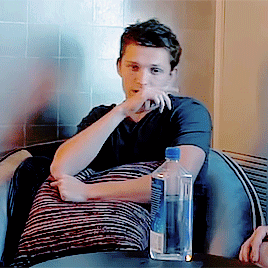
With eyes glued to the screen, her mind had already made up the words. Being a critic sometimes, was not such an easy job, but there were perks to being a critic—the fact that she could watch movies or shows a day or two prior to their official release, (this was the case, sometimes, however, she was not complaining), and also for the fact that she liked criticizing writers’ for things that they’ve gotten wrong about their own characters, or even addressing the things that she did like.
[y/n] believed she was the voice of the people, and that was the way things were. She would not change a thing about her life.
As meticulous as it would seem, [y/n] got a lot of preparation done beforehand; before she wrote a critique for a show or a movie, she’d always research and understand the writers’ ideas, the thoughts that went into making the scene, the actors’ understanding of the scene, and what she needed to focus on—even the smallest aspects such as lighting or sound or even the cinematography. Being a journalist was hard, but she understood that being a journalist that specialized in movies and anything related to the big screen, was harder.
As soon as the finale of the most acclaimed show “Birds of a Feather” was done, her phone buzzed. She knew who it was before she even saw the name on the caller ID. Birds of a Feather starred some of the biggest stars in Hollywood; it was a show about a man chasing redemption, and several other characters’ lives intertwined with his, and every choice he made echoed like a butterfly effect. What she used to love about the show was how it was never centered around one person, of how every single character was important. She loved how the show had some of the best character developments in the history of making fictional characters. However, with the final season, [y/n] was forced to change her mind.
The main character, Lionel, played by Tom Holland—loved and revered by everyone as the best Spiderman, turned out to have the best character development, only to fall short to succeeding in his character arc. The show writers’ did his character injustice by taking his life—since Lionel’s life was that of torment. With seven seasons of repeated mental massacre, Lionel deserved at least a bittersweet ending. This is like Dexter all over again, [y/n] thought rolling her eyes.
Begrudgingly, she picked the call. It was her manager, of course.
“Don’t you dare!” Her manager screeched over the phone, forcing [y/n] to pull the device away from her ears.
“Come on, you saw it. You can’t expect me to go nice on them because of Tom fucking Holland. Please. He did a great job, but the script was poor.” [y/n] scoffed as she rebutted her manager’s so called request.
“Listen, [l/n], Tom’s a nice one and we’ve not ever published anything bad about him. Remember the review you wrote for Spiderman? People adored you for it because it made them fall for Tom more! They see the truth in your words! So you’ve got to make them—”
“Got to make them what, Susannah? Got to make them like the show that the writers’ themselves couldn’t do? I cannot! I chose to become a critic because I liked giving people exactly what they wanted to hear. And for all I know, Tom Holland deserves to know what his fans think of his acting and what the fans think of the idiots who wrote his role into the dirt!” [y/n] screamed back before cutting the call.
She had decided. One more day and her review would go live.
*
Unlike what most people thought, Tom didn’t care much for what people thought of the show. However, when he saw the review posted by the London Daily that evening, his heart skyrocketed. He didn’t remember the name of the critic who wrote it, but he remembered that this particular place had never said anything negative about the show before. The show writer was a good friend of his, and him being called an ‘incompetent writer’ and having been accused of ‘lazy writing’ turned his mind around.
He immediately pinged his mate, Harrisson, asking him if he’d read this particular piece. A moment later, a phone call startled him. It was the show writer.
“Hey,” Tom said, not ready to talk at the moment. Tessa was on his lap and Tom had just woken up from a nap fifteen minutes prior. “What’s up?”
“Tom, this is a nightmare,” You’re telling me, he thought before holding back the smile. “You’ve got to go on Instagram and tell your fans that you support me!”
“But, Jean, this is fine, innit? It’s just a bad review. We get bad reviews for everything along with good ones—”
“No, no, no, Tom, you don’t understand. This is [y/n] [l/n]! Her words are the truth!” Tom wanted to scoff, but didn’t. “Whatever she says, the fans agree with. It’s not as if the fans don’t have a brain of their own, it’s just that she’s very good with words. So far, she’s been a great fan of our show but with the finale and everything, she’s seen and taken note of a few things that I might not agree with and I—”
“Jean, you’re ranting again, I can’t really follow.” Tom spoke, apologetically.
“Tom. [y/n] cannot be ignored. You’ve got to make a statement saying that this isn’t lazy writing and that a lot of thought went into this ending.”
But, did it though? Tom thought, before agreeing. It’d be blatant betrayal if he disagreed with the writer. Even if he didn’t see the ending coming, even if Tom himself was a tad bit displeased with the ending Lionel received, there was no way he’d admit it. Signing, he took his phone out in his hands and opened Instagram. Oh, well. Tom thought before getting into the act.
“Hey guys! Thank you so much for all the love and appreciation that you guys have shown throughout these seven seasons, it’s been great and I couldn’t do it without any of your support! And I understand if some of you might be displeased with the ending that Lionel’s got, but let me tell you this that a lot of thought has gone behind making this show and there’s no sign of lazy writing or incompetence from anyone’s side. It hurts my feelings to see words being spewed everywhere about the same by a critic who specializes in finding out what’s wrong in movies or shows. I’d really appreciate it if you guys don’t take into account bad reviews that can sway your mind. I love you all and I thank you again! Bye!”
God, that took the life out of me, he thought before sighing. His phone buzzed and Tom noticed Harrison’s name on the ID.
“Hey,” Tom said, laying back on his couch. “What’s—”
“I can’t help but agree with her, man.” Harrison’s voice alerted him.
“What?” Tom frowned. He hadn’t read the entire review, but he understands a bad review when he sees the title itself.
“Hm, you see, bud. Her points make sense. Some of the moments that led to Lionel’s ending don’t even add up. If you go through what she says—”
“It doesn’t matter now, Haz. Whatever the review says, I’ve gotta stay true to what I’ve acted as—”
“What did you do?”
Sometimes, it irked him with how well Harrison knew Tom.
“What do you mean?” Tom asked, patting Tessa on her head.
“I know when you’ve read a review and disagree. You’re not disagreeing here. What did you do?”
“I might have listened to Jean and said on my Instagram that the review is bullshit.”
“Tom, you did not.”
“I sort of—”
“Do you even know who [y/n] [l/n] is?”
“Uh, yeah. She’s the critic who wrote the bad review—”
“No, you twat. She’s the best critic for TV shows and movies in all of England. And most of her work is online, too. Seeing how you’ve tarnished her name on the internet might not go so well for her.”
“Uh…” Tom didn’t understand.
“Tom, you might as well have kissed her online career goodbye.”
#tom holland#tom hollander#tom holland x reader#tom holland fic#tom holland imagine#tom holland x you#tom holland fanfic
236 notes
·
View notes
Text
Jill Fields, "Where my dreidel at?": Representing Jewish Identity in Orange Is the New Black, 13 J Jewish Identities 1 (2020)
The Netflix original series Orange Is the New Black ranks among the most watched shows available for streaming online or on cable. In June 2016, the first episode of Season 4 drew 6.7 million views in 72 hours, making it second in viewership only to HBO's popular Game of Thrones.1 It also garnered critical acclaim, receiving a Peabody Award in addition to many Golden Globe, Emmy, and Screen Actors Guild nominations and awards.2 The series is based on a memoir by Piper Kerman, who served thirteen months in a minimum security women's prison in Danbury, Connecticut after her conviction on a drug-related offense she had committed ten years earlier. Created by Jenji Kohan, the series is a "dramedy" that mixes comedic touches with poignant stories based upon Piper's prison experiences and those of others she lived with and worked alongside while incarcerated. When the series debuted in 2013, it was lauded for its diverse female cast—in terms of racial, ethnic, and sexual identities—and for its sympathetic depiction of the plight of the primarily poor women who serve time behind bars.3 Orange Is the New Black (OITNB) clearly broke new ground in representing women who are rarely seen in mainstream cultural texts, especially in prominent roles. Kohan revealed in an NPR interview that she used the character of the blonde Piper—whose last name was changed to Chapman in the show and who labels herself a WASP in both her memoir and on screen—as a "Trojan Horse" in order to sell the series to Netflix executives, who green-lighted a project that began with Chapman as the lead, but quickly evolved in an inclusive direction by elevating women of color to co-starring status.4
Academic assessment of OITNB has celebrated aspects of the series, but also critiqued ways in which the show upholds stereotypes about women of color, lesbians, transwomen, and older women, and how it draws upon women's prison film conventions that objectify incarcerated female bodies, albeit at times self-knowingly.5 Less noted thus far by scholars is the prominent attention the show gives to its Jewish characters and themes.6 Though the series deserves praise for shining light on diverse female experiences, its treatment of Jews draws upon long-standing tropes. The show deploys, for example, the classic construction of the interfaith relationship, seen for over a century in American culture; the enduring American television tradition of covert rather than openly Jewish identity; and reliance on the conversion narrative in portraying Jewish beliefs and rituals. These mechanisms highlight, yet also displace, the depiction of Jewishness on the series and the contributions of its Jewish creator, writers, directors, and actors.
Studies of Jewish representation in American popular culture have addressed both the presence and absence of Jewish characters and narratives. Documentation of the Jewish presence in film and television has produced assessments and generated debates about whether particular portrayals draw upon or challenge antisemitic tropes, provide realistic depictions of the Jewish-American experience, or sidestep considerations of what it means to be Jewish.7 Over time, and in tandem with emerging trends in feminist analysis and cultural studies, investigations of the representation of Jews in film and television began to also consider how particular narratives construct Jewish identity, especially in regard to gender, and explore contradictions embedded in mass cultural texts that reference Jewish experiences. Though ire, fear, outrage, and appreciation continue to motivate some research and give it urgency, analysis questioning assumptions about claims to authenticity, acknowledging diversity within Jewish communities, and drawing parallels in addition to contrasts with how a range of minorities are represented both in front of and behind the camera has provided new insights and opened up new ways of thinking about larger frameworks as well as specific texts. Nonetheless, asking whether products of the culture industry such as OITNB are "good for the Jews" remains relevant even when also taking into account a range of Jewish experiences and practices, the potential instability of identity formations, and possibilities for conflicting interpretations.
Important Jewish characters in OITNB include Piper Chapman's fiancé Larry Bloom, inmate Nicky Nichols—who I assert is a crypto-Jew through Season 5—and African-American inmate Cindy Hayes, who converts to Judaism in Season 3. It is significant as well that a number of actors, writers, and directors employed by the show in addition to series creator and producer Kohan are also Jewish. In what follows, I explore relevant aspects of the source material—Kerman's memoir—with a primary focus on how the fictional characters and their stories create Jewish moments in series episodes. I also suggest ways in which the representation of Jews connects with the show's Jewish cast and crew. Moreover, the contrast between the show's groundbreaking status and its employment of practices that date back to earlier periods in the history of television reveal the persistence of problematics for including fully realized Jews and their narratives on the small screen.
Larry Bloom, Masculinity, and Jewish Betrayal
Piper's Jewish fiancé Larry Bloom appears in the first episode of Season 1 and remains in the series through Season 2.8 The real Piper's real-life Jewish fiancé (now husband), who is a successful writer with the far less iconic Jewish last name of Smith, is in Kerman's memoir supportive and loving throughout Piper's prison ordeal, as are his equally wonderful parents. Larry Bloom of the series, an aspiring writer who struggles to get a paying gig, is initially kind and defends Piper to his awful Portnoyesque parents, who try to get him to dump his shiksa girlfriend. Larry has internalized his father's view of the blonde gentile woman as exotic and uses the term himself when proposing to Piper after she is sentenced. "Why would I want a felonious former Lesbian WASP shiksa who is about to go to prison to marry me? Why? Because this underachieving, underemployed Jewboy loves her."9 Larry Smith describes meeting Piper in similar terms: "Piper was pretty by anyone's standards, but blonde, blue-eyed, Waspy girls are catnip for hairy Jewish guys like myself." He further describes "classic Piper: steely and self-contained. I grew up with a different window into the world of women, one where they are a little neurotic and a lot needy."10 This well-worn construction of Jewish women has appeared in a range of media and texts, including interfaith marriage narratives depicted in such films as The Heartbreak Kid (1972) and Along Came Polly (2004), and in the 2015 comment by then-presidential candidate Donald Trump calling Congresswoman Debbie Wasserman Schultz "crazy" and "highly neurotic."11 In OITNB, Larry further demonstrates his assimilationist impulse by preparing roasted pig for the couple's last meal together before Piper's self-surrender at Litchfield prison; their first snack in the prison visiting room is pork rinds.12
Larry is played by actor Jason Biggs, who has portrayed Jewish men in films such as American Pie (1999), though not Jewish himself.13 Soon after OITNB debuted, articles such as "Does Orange Is the New Black Have a Jewish Problem?" expressed concern about yet another iteration of Jewish masculinity as having "that tortured, brooding, nebbish quality we've come to associate with Woody Allen."14 Moreover, as other characters are humanized via flashbacks that reveal their difficult personal histories and draw viewers' sympathies, Larry's weaknesses become more apparent as the narrative unfolds and he draws viewers' disgust. A 2014 article, "A Guide to The Internet's Love of Hating Larry Bloom From 'Orange Is the New Black,'" concluded Larry was so detested he was the object of "world-class hatred."15
Larry's multiple betrayals of Piper propel his development into—or revelation as—a despised, nebbishy Judas. His first step down that path is watching episodes of Mad Men alone, after promising Piper he would wait to watch them with her after her release. To do so guilt-free, he turns over a framed photo of the two of them on his coffee table. As one critic called it, "Only a truly terrible human being would go against his loving girlfriend's wishes and watch their show without her. But turning the frame over? That's just cold-blooded."16 Larry's initial betrayal leads to more. When his only chance to get paid for writing an article requires detailing the prison experiences that Piper has shared with him in phone calls and visits, he goes ahead without her permission.17 She finds out about his New York Times "Modern Love" column from her prison counselor and, after viewers see Larry excitedly buying up copies of the newspaper, we find out that he has revealed information that endangers the tenuous relationships Piper has been building and needs to survive prison.18 In a subsequent episode, despite Piper's distress, Larry cozies up to an NPR reporter he meets at a Thanksgiving dinner, which results in a radio appearance sharing similar stories. Again, Piper only finds out about this after the fact, and listens in horror as Larry further humiliates both her and inmates she knows.19
The real Larry did write a "Modern Love" column about his relationship with an inmate, though it was published well after Piper's sentence ended, and a month before the 2010 publication of her memoir. Likely timed to promote Kerman's book prior to its release, the column most importantly does not betray her or her prison friends. Instead, Larry focuses on his devotion to Piper throughout her incarceration and the men he met who were also visiting their wives or girlfriends. The column ends with claims that his consistent visits and phone calls were not testaments to his character but instead prove how wonderful his fiancée is.20 In contrast, Netflix Larry's multiple betrayals reach their ultimate conclusion when he sleeps with Polly (Maria Dizzia), Piper's married best friend and business partner, and then dumps Piper for her. Larry and Polly even move in together and are shown enjoying their comfortable New York City lives as Larry and Piper used to do.21
Expressing dismay about how the show transformed Larry's character by drawing upon familiar tropes that denigrate Jewish men and Jews generally, and identifying differences between the two portrayals of Larry, is a fair, but ultimately narrow criticism. After all, adapting books into movies or television shows, whether fiction or non-fiction, requires alterations. The real Larry, for example, explains that translating Netflix Larry into what he calls a "schmuck" made the show more interesting.22 Another way to frame that transformation is to ask what purpose the nebbishy Judas/Jewdas performs in the OITNB narrative. I would argue that Larry's betrayal not only relieves the show from an unexciting story of a reliable boyfriend, but also displaces questions about possibly exploitative aspects of Kerman's best-seller and hit series onto the despicable and feminized Jewish man. This narrative turn burnishes the author's—and series creator Kohan's—celebratory claims to tell rather than sell the stories of incarcerated women who will not profit from their commercial dissemination.23
Kohan's OITNB cookbook, which features "Larry's Orange and Black Peppercorn Pulled Pork," is suggestive of her commercial goals and conflicted take on just how seriously the show and the discourse it has generated consider prison conditions.24 In addition, Kerman's former girlfriend, Cleary Wolters, who facilitated Kerman's criminal involvement in the drug trade, states in her memoir that she was never contacted by anyone connected with the book or the series prior to their release. In OITNB, her fictionalized character Alex Vause ends up in the same prison with Piper and their relationship is a central story line. When the Netflix series debuted, Wolters was out of prison and working and, though her employers knew the broad outlines of her criminal past, she had not shared details nor come out as gay at work when outed by the series. Wolters feared for her job security, aware of her tenuous status as an ex-felon. Within one day of the series release, the identity of the "real Alex Vause" was posted online, which caused her anxiety that former inmates might track her down. Ultimately, however, Wolters felt grateful that the success of OITNB allowed her to also share in print the sobering lessons of her criminal past and prison experiences.25 Nonetheless, the risks provoked by Wolters's inclusion in the memoir and series raise the question of exploitation, a charge against the show conceptualized as "trauma porn." Ashleigh Shackleford popularized the term in her assessment, shared by a number of African-American critics, that the show depicted "bleak narratives about the experience of people of color for the entertainment of those who have never lived those experiences."26 Such critiques provide further evidence for reading Larry's many betrayals as a displacement or hedge against similar charges directed toward Kerman or the series creators. As a long-standing trope, Jewish betrayal is easily identifiable and works to distract or absolve others of incriminating behavior.
The Jewish Inmate Problem: Levy
The treatment of a woman who, like Wolters, appears in the memoir but who has drawn less attention because she did not become an easily identifiable character in the show, provides an additional avenue for exploring Jewish identity in OITNB. Kerman's descriptions of Levy, a Jewish inmate, suggests the translation of Larry into a Judas can be indeed identified as a "Jewish problem," and one that originated in the memoir rather than the series. Consideration of the memoir is uncommon in studies of the series; Hilary Malatino's analysis is an important exception that provides a point of comparison below.27 A French Moroccan Jew, Levy is the only inmate whose behavior and demeanor Kerman derides repeatedly in her memoir. Levy is a true "other" in prison. As Kerman explains early on:
When a new person arrived their tribe—white, black, Latino, or the few and far between "others"—would … get them settled and steer them through their arrival. If you fall into that "other" category—Native American, Asian, Middle Eastern—then you got a patchwork welcome committee of … women from the dominant tribes.28
Levy thus falls outside or in between even the "other" category, but her status as a Member of the Tribe without a tribe and the impact her singularity might have had on her ability to in fact "get settled" is not considered by the otherwise compassionate Kerman. Described in the memoir as "tiny," Kerman scorns Levy for being "totally useless at electrical studies" despite "preening about her Sorbonne education."29 She is also criticized for her decision not to allow her children to come visit her because she does not "want them to see her in prison," despite Kerman noting without judgement others who "did not want their people to see them in a place like this."30 Kerman even positions Levy below guards in likeability: "'Zey have no class,'" sneered Levy. I didn't like prison guards, but she was insufferable."31 This excerpt is also an example of how Levy is singled out by Kerman, who reproduces her accent in the text to a greater degree than any other prisoner's. Levy is also ridiculed for crying more often than Kerman deems appropriate, though Kerman writes that when seeing an inmate cry after visiting hours are over, "you smiled sympathetically or touched their shoulder."32 Together, these comments justify Levy's status as:
the unifying factor in the [electrical] shop: the rest of us united against her. She was insufferable, crying daily and complaining loudly and constantly about her measly six-month sentence, asking inappropriate personal questions, trying to boss people around, and making appalling and loud statements about other prisoners' appearance and lack of education sophistication, or "class," as she put it. … Most of the time she was nervous-verging-on-hysterical, which manifested in dramatic physical symptoms; an astonishing hive-like swelling made her look like the Elephant Man, and her always sweating hands made her particularly useless for working with electricity.33
Though we do not learn the specifics regarding the cause of Levy's incarceration, Kerman mentions Levy was "whisked away to testify against her chiseler ex-boyfriend."34 However, the worst offense committed by Levy, according to Kerman, occurs after her release when she is interviewed by the Hartford Courant in September 2004, just before Martha Stewart's incarceration. Kerman reports the "Camp freaked out" that Barbara, as Levy is referred to in the newspaper article, describes the prison as a "big hotel" with "an ice machine, ironing boards," "two libraries" and "amazing food," and that she says she enjoyed not having to cook, clean, drive or buy gas. Kerman responded to the article in her memoir by "pictur[ing] Levy, swollen with hives, looking like the Elephant Man, crying every single day over her six-month sentence and sneering at anyone she thought was not 'classy.'" Though Kerman states the "reporter got many minor facts wrong," she and other inmates who "are outraged by the false claim that [they] could buy Haagen-Dazs ice cream" at the commissary blame Levy for the error. The prisoner in charge of the kitchen, Pop in the memoir and Red in the show, is upset and confused:
Piper, I just don't understand it. Why would she lie? You have the opportunity to get the truth out there about this place, and instead she makes up these lies? We have nothing here, and she makes it sound like a picnic.35
Kerman then explains to her readers that Levy lied because she "didn't want to admit to herself, let alone to the outside world, that she had been placed in a ghetto, just as ghetto as they had once had in Poland." Kerman here assumes that she understands the Jewish ghettos of World War II-era Poland better than Levy. She continues:
It was too painful … for Levy and others (especially the middle-class prisoners) to admit that they had been classed as undesirables, compelled against their will into containment, and forced into scarcity without even the dignity of chosen austerity. So instead, she said it was Club Fed.36
Kerman uses the ghetto metaphor to help her readers understand the "revolving door between our urban and rural ghettos and the formal ghetto of our prison system" in the United States and the difficulty of escaping either.37 However, Kerman, in collapsing distinctions, overlooks differences between Nazi ghettos and those she references, and also ways in which targeted communities form alliances based in shared histories of pain and oppression. Moreover, she does not consider the possibility if not probability that Levy has family members who perished, or who suffered and survived the Holocaust in France and Morocco. In a comparable critique, though one focusing on gender identity, Malatino finds Kerman "lacks a framework for understanding trans subjectivity," and uses "classic othering strategies … [that] serve to de-authenticate transfeminine gender expressions."38 Kerman similarly lacks intersectional frameworks that could account for Levy's status as both wielding middle-class privilege and experiencing her subjectivity as an isolated and vulnerable minority.
Lacking fuller consideration of Levy's multiple facets, Kerman also did not mention that Levy in the interview lauded her fellow prisoners as "classy" and defended them against charges that sexual assault was common. For Levy, "The worst part about being there was being counted. They count you like an animal." Whether intentional or not, her emphasis on this aspect of prison life being exceptionally difficult for her evokes the experiences of Jews in Nazi camps during the Holocaust, an allusion that escapes Kerman. The Courant also sympathetically reported Levy's decision not to see her children, which Levy states was the hardest part of her stay, and an effort to maintain her dignity.39
Levy indeed may have been annoying. But that alone does not explain why Kerman devotes so much attention to her. In assessing what work she performs in the narrative, I argue Levy serves several functions. First, she is a vehicle for the middle-class Kerman to distance herself from those of her own class and to legitimate her claim that she accepts her shared status with poor undesirables, which other middle-class women prisoners like Levy do not. Second, she confirms the view of Jewish women as needy and neurotic, a dominant caricature even promulgated by Kerman's real-life Jewish husband. Levy thus also is a vehicle Kerman uses to elide her possible association with reviled Jewish femininity via her relationship with a Jewish man. Third, Levy translates into Netflix Larry as they are both Judases who in self-interest betray the experiences of incarcerated women in mass media forums. Levy-Larry are categorically unable to truly understand who those women are or identify with them, unlike the transcendent Kerman. Thus Levy-Larry is the mechanism by which Kerman and by default Kohan distance themselves from assessments that they are profiting from the ordeals of women who do not have similar professional opportunities to do so.40 Moreover, the construction of the justifiably hated if not abject Jew that results from Levy's transgressive behavior and Larry's increasingly despicable acts creates more possibilities for the diverse female inmates to be viewed sympathetically by readers and viewers.
OITNB and Television's Crypto-Jews
The portrayal of Jewish identity on the television series OITNB contains further complexities, as Jewish elements beyond the Bloom stereotypes are depicted from its earliest episodes. A mechanism for simultaneously including and excluding Jews in television is the long-standing practice of the crypto-Jewish character. Leslie Fiedler first used the term in 1964 to describe the phenomenon of characters whose Jewish identity is hidden, like the original crypto-Jews, Spanish Jews forced to convert in 1492 whose Mexican and Mexican-American descendants maintained Jewish practices for centuries typically without knowing the origins of their family traditions.41 Fiedler deployed the term critically in analyzing Willy Loman in Arthur Miller's Death of a Salesman and other characters penned by mid-twentieth-century Jewish-American writers such as Paddy Chayefsky, Bernard Malamud, and Norman Mailer. Fielder deplored the effect of "characters who are in habit, speech, and condition typically Jewish American, but who are presented as something else—general American," as "pseudo-universalizing." As a result, "the works … lose authenticity and strength" and constitute a "failure to remember that the inhabitants of Dante's Hell or Joyce's Dublin are more universal as they are more Florentine or Irish."42
Jewish Studies media critics such as Jeffrey Shandler, David Zurawik, and Vincent Brooks found the crypto-Jew concept useful in describing television characters whose Jewish identity is ambiguous, hidden, or suppressed but hinted at through narrative gestures, personal qualities, or physical features and often by being played by a Jewish actor. These critics explain that the crypto-Jew phenomenon was born of concern largely on the part of Jewish television executives that shows that appeared "too Jewish" would not appeal to most Americans and would make them vulnerable to charges of Jewish control of the media. The practice emerged in television's "Golden Era," after the popular radio and then television show The Gold-bergs ended its twenty-six-year run in 1955. The Goldbergs depicted an observant Jewish family of modest means comprised of immigrant parents and America-born children living in New York City. Matriarch Molly Goldberg (Gertrude Berg) was a beloved mass culture icon known for her down-to-earth wisdom and endearing malapropisms. Despite its broad appeal—Berg won the first Emmy awarded for Best Actress in 1950—Jewish television moguls such as William Paley, who headed CBS, made it clear that no new shows with Jewish leading characters would be aired. This attitude has been attributed to television executives' fears that Jewish programming would bring unwanted attention and therefore problems to Jews working in the medium. Occasionally, Jewish characters appeared in Jewish-themed episodes of shows from westerns like Rawhide (1959–1965) and Bonanza (1959–1973) to procedurals such as The F.B.I (1965–1974). However, the maxim "write Yiddish, cast British" became the rule through the 1970s. It was implemented most famously in network discussions about what became The Dick Van Dyke Show (1961–1966). Created by Carl Reiner, who planned to star, the sitcom was based on his life as a television comedy writer and head of a Jewish family living in the suburbs. Innovative in depicting both its main character's home and work life, CBS agreed to put the show in the prime time schedule if Reiner, et al. would step aside for a "less ethnic" cast. The one exception in the final ensemble was supporting character Buddy Sorrel, played by Morey Amsterdam, though his Jewish identity was rarely referenced.43
In the 1970s, "write Yiddish, cast British" remained a guiding principle on network television, though popular shows such as Barney Miller (1974–1982) and Welcome Back Kotter (1975–1979) featured lead characters with familiar Jewish identifiers, such as their New York City origins and speech patterns, and who were played by Jewish actors. Nonetheless, such characters remained crypto-Jews, as story lines never referenced or confirmed their Jewish identity. Rhoda (1974–1978), a spin off from The Mary Tyler Moore Show starring the non-Jewish Valerie Harper as Mary's Jewish friend Rhoda Morgenstern, was an exception, a sitcom about a Jewish woman. Even after the late 1980s and 1990s saw the return of the Jewish female lead in The Nanny (1993–1999) and Will & Grace (1998–2006), and the Jewish leading man in dramas thirtysomething (1987–1991) and Northern Exposure (1990–1995), the crypto-Jew remained an important creature of network television. Crypto-Jews of this era include George Costanza, Kramer, and Elaine on Seinfeld (1989–1998) and Rachel Green, Monica Geller, and Ross Geller on Friends (1994–2004). In an echo of the decision to recast what became The Dick Van Dyke Show, NBC executives insisted the Seinfeld characters, who were created as Jews, not remain so. Only Jerry Seinfeld remained identifiably Jewish, which was unavoidable as his character was based on the already known Jewish comedian's real persona.44
Despite this decades-long context and an emerging self-referential and fearless Jewish sensibility in twentieth-first-century cable programming personified by Jon Stewart on The Daily Show, Larry David's Curb Your Enthusiasm, and Ilana Glazer and Abbi Jacobson's Broad City, and by the Amazon series Transparent, celebrated as the "Jewiest show ever," all of which found broad audiences, Orange Is the New Black features crypto-Jews among its diverse cast.45 Jewish actors in the series in recurring roles that began in the first season include Yael Stone, Constance Shulman, Barbara Rosenblatt, and Natasha Lyonne. Constance Shulman's character Yoga Jones's potential identity as a crypto-Jew is tipped off in a visual cue. As the inmates prepare for the December holidays by decorating the prison, Jones tapes a two-dimensional dreidel decoration to the wall upside down. Whether this indicates ignorance or a sign of Jewish distress (or Jews in distress), like the meaning of flying the American flag upside down, it is significant that this moment precedes, and perhaps precipitates, the scene where Jones's back story is revealed in flashback. Though nothing in the character's background particularly suggests she is Jewish, that she becomes a Buddhist after her conviction for mistakenly shooting and killing a neighbor's child when protecting her remote marijuana crop might be, as so many American Buddhists are Jewish, they are known as "JuBus." Jones's story also evokes the television character Dharma Finkelstein of Dharma & Greg (1997–2002) whose father is a Jewish hippie and befuddled pothead.46
Drug offender Nicky Nichols is the most prominent and clearly identifiable crypto-Jew on OITNB throughout its first five seasons. Yet a case can be made as well for Yael Stone's Lorna Morello. Stone, for example, was originally considered for the part of Nicky Nichols, but instead was cast as the working-class Italian-American Lorna Morello. This cultural slippage between Italian Americans and Jewish Americans has been long noted. In 1964, for example, Leslie Fiedler cited Paddy Chayefsky's Italian American Marty as a Jewish American being "presented as something else."47 More recently, Dominique Ruggieri and Elizabeth Leebron in their research on Jewish- and Italian-American women on television conclude that ever since Mama Rosa debuted in 1950, shortly after the transition of The Goldbergs from radio to television, both Jewish- and Italian-American women have been portrayed as:
selfish, pushy, materialistic, domineering, manipulative, assertive, loud, shallow, whiny, demanding, man-hunting, weight-conscious, high-maintenance, shopping-crazed bargain hunters, possessive, controlling, unmarried, success-oriented, food-oriented, asexual, and unattractive. Physical qualities that epitomize these characters include large noses, big hair, a dark complexion and issues with their bodies. The positive characteristics linked to these ethnic portrayals include strong family orientation, loyalty, and devotion as mothers.48
In addition, several prominent Italian-American television characters, such as Dorothy Petrollo-Zbornak on The Golden Girls (1985–1992) and Marie Barone on Everybody Loves Raymond (1996–2005) were played by Jewish actors, Bea Arthur and Doris Roberts respectively. Some Jewish media journalists have gone a step further and declared the entire Barone family Jewish because the show's Jewish creator, Phil Rosenthal, infused the series with storylines based on his own family.49 Similarly, crypto-Jew Costanza from Seinfeld, who is ostensibly Italian American, is played by a Jewish actor, as are his parents. It works both ways; Italian-American actor John Turturro has played Jews in multiple films.50 Moreover, on OITNB, the connection between Nicky and Lorna is part of the narrative. In the first episode of Season 1, we are introduced to both characters along with Piper, who discovers them having sex in the shower. The amorous relationship between Nichols, who is a lesbian, and Morello, who identifies as heterosexual, continues through the fifth episode, when Morello breaks it off to save herself for her fiancé. Nonetheless, their relationship maintains an emotional and at times physical intimacy. Furthermore, Lorna later reveals her fiancé is Jewish, and decides, "If I marry him, I'll be Jewish too."51
On her own, drug offender Nicky Nichols personifies the typical television crypto-Jew. Natasha Lyonne neé Bronstein's thick, wavy long hair and New York accent are key physical markers. Nicky, an articulate, insightful, and wisecracking lesbian, was raised in Manhattan by her professional, well-to-do, divorced mother. Nicky complains about and blames her mother's absence in her life for some of the psychic distress that undergirds her addiction. Flashbacks depict their difficult relationship; however, as her back story progresses, we see Nicky is an incorrigible addict who uses her smarts and sarcasm to manipulate her mother, who eventually throws up her hands. Nicky's mother's characterization is not stable in the show and there is no evidence to suggest she is a crypto-Jew herself. For example, she is not played by a Jewish actor. Perhaps then it is Nicky's truly absent father who is Jewish. After all, her last name mirrors jokester Joey Nichols, who is Woody Allen/Alvy Singer's father's friend in Annie Hall. As Joey's cultural descendant, Nicky's comedic abilities are more fully evolved: in another marker of Jewish-American identity, she performs stand-up during the prison holiday talent show.52 Moreover, Lyonne makes her own Jewish identity clear in interviews and in the extra feature "Getting to Know the Cast" on the Season 3 DVD, where she talks about living in Israel in the 1980s, and provides the wittiest responses to many of the questions she and the other actors are asked. Nicky is also the first character to use Yiddish words in the series and the first to term a gang of white supremacist inmates as Nazis.53
In critical readings of the show, Nicky has been noted for her non-normative lesbian body, i.e., she is perceived as non-conforming to dominant standards of beauty. Such critiques either laud the show for depicting Nicky enjoying her sexuality despite not being thin and "attractive" or find fault in that the white lesbians with leading roles, Piper and her girlfriend Alex (Laura Prepon), uphold and thus perpetuate these oppressive standards.54 Furthermore Nicky's (crypto-Jewish) hair is unruly, and she does not attend fully to grooming and behavioral practices associated with femininity such as being neat, tidy, and controlled in appearance or speech. Nicky's presentation thus can be seen as conforming to the view of Jewish women as unattractive. Nonetheless, Kyra Hunting finds that:
often it is not Piper, marked by the politics of respectability who is the moral center for the group of white women but drug addict and promiscuous Nicky—whose appearance and lascivious language has rough edges but who consistently provides the most rational advice to other inmates.55
In addition, Nicky articulates incisive feminist critiques. For example, in regard to Lorna's obsession about her future marriage to her fiancé, Nicky comments on "the wedding industrial complex and society's bullshit need to infantilize grown women." Though Nicky demonstrates the benefits of her college education in such comments, she does not use her well-honed analytical skills to assert her superiority in the same manner as Piper's displays of knowledge sometimes do and for which other inmates call her out.56
Claiming Nicky as a crypto-Jew opens up further possibilities for considering her within the genealogy of "tough Jews," who defy stereotypes of Jews as weak, passive, victims or brainy yet nebbishy nerds. Scholars and commentators have deployed the term "tough Jew" to describe a range of real and representational Jewish men, from early twentieth-century Jewish-American gangsters Meyer Lansky and Bugsy Siegel and Holocaust resistance fighters the Bielski Brothers, to the muscular Zionists and Israelis who forged a Jewish state and aim to protect the Jewish people. Nathan Abrams in The New Jew in Film extends the category to include the "tough Jewess with Attitude" seen in a number of turn-of-the-century films such as Miller's Crossing (1990), Homicide (1991), and Mr. & Mrs. Smith (2005). Though Nicky engages in illegal activity, she is not a gangster in the Lansky mold, nor is she a righteous member of anti-fascist resistance. Instead, her brand of Jewish toughness is born of her defiant lesbian identity, rough street life as a junkie, and willingness to speak her mind. These attributes are essential components of her prison survival skills.57
The tough Jew is posited by Abrams as a one-half of a binary paired with the queer Jewish male. In regard to Jewish women, he explains:
the tough Jewess with Attitude not only rebels against stereo(typical) gender roles, demonstrating that she can perform the same roles and tasks as the Jew, but also questions the duality of gender in the first place, confounding both the general and Jewish binary logic.58
As Nicky is queer and tough, she confounds stereotypes about Jewish women's representation on television, and, as I discuss further below, the representation of Jewish women in OITNB. Perhaps Nicky's status as a crypto—rather than "out" Jew—is thus overdetermined because not only does she defy categorization, she is categorically defiant. However, the popular cultural presence of well-known Jews with histories of substance abuse such as Lenny Bruce, Bob Dylan, Hillel Slovak, and Amy Winehouse—and that Natasha Lyonne's own struggles as an addict inform Nicky's narrative—raises additional questions about the reluctance or apparent impossibility of presenting Nicky as Jewish.59
Like many of the inmates, Nicky is not only tough. She displays vulnerability, particularly in her relationship with her prison mother Red (Kate Mulgrew). Yet even crypto-Jew Nicky engages in a Judas betrayal by sharing with a corrupt prison guard her prison mom's secret method of getting in additional culinary supplies. He plans to use the information to smuggle in drugs. This will lead to Nicky's downfall, as she later is found with drugs in her possession and, early in Season 3, gets sent to the nearby higher security prison. The dispatching of Nicky underscores the tenuous status of the television crypto-Jew, whose identity both articulates and avoids representations of Jewishness. Crypto-Jews provide gestures of Jewish representation, however reified—such as physical features, names, personal qualities, comedic sensibilities and intellectual insights—that convey a sense of Jewishness detached from historical contexts and specific experiences. Thus, a crypto character's Jewish attributes can be assigned or withdrawn at will, evading narrative demands for continuity or follow-through. The tattoo of a cross Nicky sports on the inside of her forearm, for example, thus neither confirms nor denies her Jewish identity. Instead it speaks to the shifting construction of the crypto-Jew as both trope and pastiche.60
"Where my dreidel at?" Kosher Food and Conversion Narratives
It is telling that it is only shortly after Nicky leaves, that the first "out" Jewish inmate shows up. Or at least, the first inmate who asks for a kosher meal. It turns out she is not Jewish, but requests kosher meals to get better food. This is a real phenomenon in US prisons. According to a 2012 Forward article, just one-sixth of the 24,000 prisoners receiving kosher meals in America are Jewish.61 On OITNB, the quality of the kosher meals is quickly noticed by other inmates, particularly Cindy (Adrienne C. Moore), who is among the first to request one. By the next episode several other African-American characters whose back stories have been previously highlighted are also eating kosher. However, it is Cindy who most embraces the potential of claiming Jewish identity. When she is accused of not being Jewish, she replies, "You think you know my life? Shabbat Shalom, bitch!" And as one Jewish popular press article on the topic notes, Cindy's "quest for edible food" leads her to other Jewish references, "including 'Shanah tova and hava nagila. It is good to be chosen.'" In response to someone asking if a seat is taken, she replies, "Yeah. We're saving it for Elijah." Cindy pursues her desire to learn more about Jewish culture by checking out Fiddler on the Roof and a Woody Allen movie from the library, which is humorous yet also a self-referential gesture to the importance of popular cultural texts in disseminating information about what it means to be Jewish.62
Up to this point in the series, Cindy's character has largely served as comic relief. She is depicted as a fool and an immature petty thief who is in prison because she abused her position as a TSA officer to steal passengers' belongings at the airport.63 When a rabbi is brought into the now privatized prison to determine if prisoners requesting kosher meals are motivated by "sincerely held beliefs"—an actual legal standard employed to determine the validity of prisoners' claims to kosher meals—his interviews are relayed in a montage of inmates sharing both goofy ideas about what it means to be Jewish and some well-worn stereotypes that are played for laughs: "I think y'all are doing a wonderful job controlling the media. I mean we. We are doing a wonderful job;" and "I call my mother a lot, like every day, and, love a bargain." When asked whether she was raised Jewish, Cindy claims she was "born and bred," and recounts plot points from Annie Hall and Yentl. This strategy fails to keep her on the kosher meal list and Cindy decides to convert, ending the episode with its title question, "Where my dreidel at?"64
In the next episode we discover there actually are Jewish women inmates held at Litchfield; Cindy has sought them out to prepare for her conversion. One is Ginsberg (Jamie Denbo), who sheepishly reveals she has been convicted for money laundering when asked. This is an odd exchange not only because it is rare for a prisoner to be asked that question by another inmate, especially when they have just met, but also because Ginsberg's gesture when revealing the basis for her conviction conveys shame at having been caught both in the crime itself and in a crime that evokes the antisemitic association of Jews with money. However, that same information reassures Cindy that Ginsberg is indeed Jewish, as she was skeptical due to Gins-berg's blonde hair and blue eyes. In the commentary on the episode by its credited writer, who describes herself as an Irish Catholic, she explains that Kohan rewrote Ginsberg's monologue describing the inmate's upbringing. Ginsberg's experiences thus appear grounded in those of Kohan's herself, as when Ginsberg demonstrates she knows her Jewish chops by talking about her bat mitzvah and her Hebrew name, Shayna Malka.65
In the last episode of Season 3, Cindy, with Ginsberg and another Jewish inmate, Rhea Boyle (Yelena Shmulenson) by her side, meets with the rabbi. Rhea opens the conversation: "Why you want to go from a hated minority to a double-hated minority is beyond me," before turning to the rabbi, and vouching for Cindy by asserting, "she's for real." Cindy has chosen the Hebrew name Tovah—"which means good and it's all good now"—and explains she has traded granola bars with Ginsberg and Boyle for Hebrew lessons. The rabbi then asks, "What is this for you?" Cindy's reply, written by Kohan, is conveyed in a truly moving performance by Moore.
Honestly, I think I found my people. I was raised in a church where I was told to believe and pray. And if I was bad, I'd go to Hell. If I was good, I'd go to Heaven. And if I asked Jesus, he'd forgive me and that was that. And here y'all saying there ain't no Hell. Ain't sure about Heaven, and if you do something wrong, you got to figure it out yourself. And as far as God's concerned, it's your job to keep asking questions and to keep learning and to keep arguing. It's like a verb. You do God. … I want to learn more and I think I got to be in it to do that. … Can I be a Jew?
Cindy is ecstatic when he and both witnesses say yes, until she finds out she must also experience ritual immersion in a mikvah to make her conversion official. Ginsberg consoles her by explaining that although she is not a Jew yet, she is "Jew-ish."66
A miracle ensues for all the inmates when the guards go on strike and a construction crew accidentally rips open a hole in the fence, allowing everyone to take a dip in the lake on the other side. Most prisoners run in to enjoy their momentary freedom. Cindy finds Ginsberg, who recites the blessing as Cindy immerses her naked body in the water. Conversion complete, Gins-berg congratulates her with a "mazel tov" and Cindy is all smiles in a closeup shot depicting her deep expression of her new found source of joy. Cindy's transformation during a season in which all sorts of religious identities and meanings are explored is remarkable for her as a character and also for the way it explains the meaning of Judaism, and most importantly, the difference of Judaism, which the show affirms and upholds. Furthermore, the sensitive treatment of her conversion story creates opportunities to depict Jewish community within the prison, and allusions to Jewish community outside it. In so doing OITNB incorporates significant Jewish content that a focus on individuals, especially when occurring in fleeting moments or signaled in quips, cannot accomplish alone. I would argue the brief depiction of Jewish community on the show reveals the fissures of representing Jewishness without that larger communal context, and the potential for greater narrative depth when included.
African Americans and Jews by Choice
Cindy's conversion is credible as a personal journey that concludes the series' prison kosher food narrative, and also because it resonates with the experiences of other well- and lesser-known African-American converts—whether real or imagined—to Judaism. These "Jews by Choice" join a diverse Jewish community: a 1990 study conducted by the Council of Jewish Federations concluded that in the United States 2.4 percent of "self-identified Jews list their race as black," and "about 100,000" additional African Americans "reported having 'connections' to Judaism." In addition, African-born Jews comprise 14.6 percent of Israel's Jewish population.67 Popular entertainer and Rat Pack member Sammy Davis, Jr. was the most well-known African-American Jew for many decades following his 1960 conversion, which occurred after years of study and consultation with Reform rabbis in Los Angeles and Las Vegas. He and his Swedish fiancée, actress May Britt, "formally converted a few weeks before their wedding."68 Other well-known African-American converts include writer Julius Lester, actress Nell Carter, writer Jamaica Kincaid, and rapper Shyne. Convert Alysa Stanton became the first African-American woman rabbi in 2009. She decided to convert when in her twenties, explaining her choice in similar terms voiced by the fictional Cindy, "For me, Judaism was where I found a home." After overcoming initial hesitancy upon her hiring, she ultimately led the Congregation Bayt Shalom in Greenville, North Carolina to great acclaim.69
Fictional African-American Jews have also previously appeared on television. In an episode of the 1970s situation comedy Sanford and Son entitled "Funny, You Don't Look It," patriarch Fred Sanford (Redd Foxx) is told by a genealogist that he is a descendant of Ethiopian Jews. His initial reaction trades in stereotypes in a similar vein to Litchfield inmates' attempts to assert a legitimate claim to their kosher meals, such as articulating his new-found desire for his son to become a doctor. However, like Cindy, Fred then explores more deeply the meaning and history of Judaism and its rituals. When it turns out he was misinformed about his Jewish roots, he celebrates what he learned and appreciates his Jewish teacher's perspective that "Jews and blacks … have a lot in common," hoping that "the similarities will bring us closer together."70
Sammy Davis, Jr.'s conversion was also motivated by sentiments about connections between the two minority groups, in addition to spiritual connections he felt after a 1954 car crash in which he lost one of his eyes. He had become familiar with Jewish teachings and practices after working closely with Jewish entertainers such as Eddie Cantor, whom Davis credited for giving him his first big break. Davis particularly admired and was inspired by the Jewish people's ability to survive adversity.
These are a swinging bunch of people. I mean I've heard of persecution, but what they went through is ridiculous! … They'd get kicked out of one place, so they'd just go on to the next one and keep swinging like they wanted to, believing in themselves and in their right to have rights, asking nothing but for people to leave 'em alone and get off their backs, and having the guts to fight to get themselves a little peace.71
Despite the lengthy period during which Davis considered conversion, when accomplished it was met with some skepticism and criticism. Ribbing from his Las Vegas Jewish comedian friends was to be expected, but he was also the object of charges from some African Americans that he converted to advance his career, and escape from his blackness. Such accusations may explain his 1980 statement in Ebony that "My people are my people and my religion is my religion. My people are first. I happen to be a Black Jew. I am Black first and the religion I have chosen is Judaism."72
African Americans who become or are born as Jews challenge static notions of black and Jewish identity. Popular cultural renditions can further evoke the fluid terms that construct identities generally. African-American inmate Cindy, in OITNB, seeks and finds a spiritual home by converting to Judaism. Moreover, African-American Jews, both real and imagined, create spaces for plural Jewish identities. Yet questions remain about the benefits, costs, and consequences of such transformations, and their meanings in cultural representations.
In Lovesong, Julius Lester's 1988 memoir, he explores his path to conversion and the many dimensions of his Jewish identity. In the book's preface Lester states, "I am no longer deceived by the black face which stars at me from the mirror. I am a Jew."73 This expression of tension between his identities as black and Jewish is articulated by other African-American converts as well. Assumptions when attending services at an unfamiliar congregation that one is a curious visitor and not Jewish, and accusations from African Americans that conversion to Judaism represents a desire to escape blackness and become white, are both common experiences of black Jews by Choice. However, among other diverse Jewish populations, African-American Jews open up conceptions of what an American Jew looks like and point to limitations regarding assumptions about Jews and whiteness. In OITNB, Cindy's character also points to more flexible understandings of Jewish-American identity. Cindy's turn to gospel music after an African-American inmate's death—"I may be a Jew now, but times like this call for some Black gospel no matter what"—is a tribute to the power of that musical form and an expression of her own dual moment when she articulates both her black and Jewish identities. Asserting Jewishness as American in this case is also related to African-American cultural expression. Moreover, as Terry Shoemaker points out, Cindy shows she "is capable of being both Jewish and African American."74
OITNB's deployment of an African-American character's conversion to Judaism to convey Jewish values and depict Jewish rituals without inclusion of a fully realized recurring Jewish-American character and community underscores the problematic representation of Jewish identity in American popular culture. Though Cindy in OITNB tells the visiting rabbi in Season 3 she has "found her people" when professing to the sincerity of her quest to become a Jew, Season 4 depicts her prison experience largely as before, living among and hanging out with her African-American friends, with sparse attention to her new found faith and its meaning for her. Despite her new mezuzah, the Jewish inmates who assisted her conversion have not become a part of her life and no longer appear on the show. Moreover, Cindy's Jewish identity flattens, expressed primarily by her and other inmates in articulations of stereotypical if not antisemitic Jewish avarice. Conflicts with Alison, a newly arrived African-American inmate who is Muslim, wears a hijab, and is assigned to the bunk next to Cindy's, lightly spoof tensions between the two groups, yet mostly at Cindy's expense. In one episode, Alison hopes to trade access to her contraband cell phone for some of Cindy's commissary-purchased tampons during a prison sanitary napkin shortage. When Alison references a Biblical admonition, "If there are poor among you, do not be selfish or greedy towards them" to make her case, Cindy rejects this view as Christian. In addition to demeaning Cindy by showing her to be ignorant of the shared basis of the Abrahamic religions, which Alison understands, the one-dimensional focus on stale jokes about Jewish greed that dominate Jewish references in Season 4 prevents Cindy from articulating deeply-held Jewish values—for example in this moment of potential tzedakah—as she had during the previous season's focus on her conversion.75 Thus, the show's sympathetic portrayal of Jewish faith, values, and identity is short-lived, and its reliance upon an African-American character who converts to convey the authenticity of the Jewish experience most fully proves unstable.
Despite their limitations, a century of cultural texts from The Jazz Singer to OITNB have served as vehicles for disseminating information via mass culture about Jewish practices, values, family life, and community concerns to gentile audiences. Such exposure serves an ongoing need, as African-American actress Yvonne Orji recently demonstrated when she said, "I know what Shabbat is by watching Curb Your Enthusiasm."76 Yet the apparent impossibility for OITNB, despite its well-deserved reputation for inclusivity, to incorporate a Jewish-American inmate, or an ongoing Jewish prison community, however small, for Cindy to continue to interact with, suggests Jewish television creators and writers are still struggling with a revised, contemporary version of the "write Yiddish, cast British" mandate. One expression of that dilemma occurs early in the series when a posted list of religious services is shown to include Catholic, Wiccan and Muslim, but omits a Jewish option.77
Nicky and Cindy: New Information and Missing Connections in Season 6
Six years into the series, Nicky's crypto-Jewish identity resolves via a flashback to her fraught bat mitzvah. Her parents are divorced, squabbling, and more concerned about superficial and materialist aspects of the event than their daughter's achievement. As the second pair of Jewish parents depicted on the show, they are far worse than Larry's, who, however misguided, at least cared about their son's well-being. The bat mitzvah plays out as a teenage revenge fantasy, as Nicky strays from her prepared Torah commentary to excoriate her parents in front of the congregation. Yet the additional details provided about Nicky's self-absorbed and neglectful parents, whose behavior has been referenced previously, though not as Jews, do not further humanize Nicky nor serve to explain in a compassionate manner her drug addiction and criminal behavior because her parents, like Larry's, are one-dimensional. As one reviewer assessed the season, "Nicky Nichol's bat mitzvah is a train wreck with some good laugh lines, but it does not feel like an indispensable part of this show." Rolling Stone's Season 6 review similarly found only one of the season's flashbacks—about two other characters—"worth the bother," and did not mention Nicky's at all.78
The bat mitzvah flashback comes after Nicky, who is facing significant additional prison time in the aftermath of a prison riot, has contacted her father for legal assistance, and he comes through. Themes of Jewish betrayal become central as he urges Nicky to betray Red—again—to save herself. She does, though Red in a Stella Dallas moment of maternal self-sacrifice grants her permission to do so.79 Moreover, Cindy faces a similar high-pressure situation. She contacts her conversion rabbi for legal assistance, which he facilitates. Here too, her lawyer advises her to betray her best friend.80 Though wracked with guilt—a "Jewish thing" another inmate explains—she does.81
Though Cindy asserts the primacy of her Jewish identity in this season by using her Hebrew name when she becomes co-host of a radio show within the prison, she must do so repeatedly to her gentile friends. Other audiences apparently also need convincing; it is interesting that in the closed captions for the show, she is always referred to as Cindy, not Tovah.82 Furthermore, though there are parallels to Nicky's and Tovah's story lines, they seem to exist, like these characters themselves, in separate worlds within the prison. They appear briefly together in a prison wedding scene, where Nicky has donned a yarmulke and prayer shawl to officiate, though the couple, Piper and Alex, are not Jewish and there is no Jewish content to the ceremony. The Jewish objects, which also include a chuppah, add an exotic vibe that liven up the dreary setting, but like Nicky and Tovah, do not connect in any meaningful way with their Jewish character, identity, or values. The cross tattoo on Nicky's forearm is prominently displayed in another indication of her continuing ambivalent status post bat mitzvah flashback. In a measure of the irrelevance of the Jewish components depicted at the wedding, many reviews of the episode do not mention them at all. Thus, the Jewish elements of this season's important final episode—that includes a classic TV series ratings magnet, a wedding—provide color or comic effect, detached from ritual and cultural significance.83
Conclusion
In OITNB's final, seventh season, Nicky retreats to her crypto-Jewish identity. Despite having a loving relationship with a lesbian Egyptian inmate held for an immigration violation, a seeming set up for jokes and storylines like those created for Alison and Cindy in Season 4, there is bupkis about Nicky's Jewishness in any of this season's episodes. In regard to Cindy, the brief references to her being Jewish in Season 7 are few and far between. Though her rabbi comes through for her again in writing an employment reference letter, which secures her a job, he is mentioned only in passing, and Cindy is never depicted interacting with other Jews. These retrenchments once again point to the instability of the crypto-Jew and convert in reliably relating Jewish identity, practices, and sensibilities in television narratives. Erasure and marginalization of Jewish perspectives also appear to be facilitated by the absence of depictions of Jewish community.
Over its seven seasons, OITNB's shifting representations of Jewish identity move from the Bloom stereotypes and crypto-Jew Nicky Nichols, to the inclusion of Ashkenazi Jews in minor supporting roles that are essential in supporting the conversion of higher profile character Cindy. In Season 4, the reversion to stereotypes about Jews accompanies the return of crypto-Jew Nicky, who has been transferred back from a higher security prison. Perhaps the series' success in featuring the stories of women of color, lesbians, and transwomen, and in building a fan base for its diverse cast, created the possibility for the open exploration of what it means to be a Jew, if only temporarily. Nonetheless the instability of Jewish identity in the show may suggest tensions and uncertainties surrounding the relationship of Jewish subjectivity to those more clearly understood as marginalized. Thus it is significant that the character with the most screen time who voices the most endearing and sympathetic Jewish perspective is a convert who expresses her Jewish identity through the lens of her experience as an African American. When Nicky is revealed to be Jewish in Season 6, it makes little difference, as her Jewish identity and that of Cindy/Tovah's typically find expression only in passing verbal quips or visual jokes. These indications are underscored in Season 7, the series' last, in which the Jewish identities of these characters are rarely referenced or elided completely. Like other television shows that only explore Jewish identity in the apparently safer context of interfaith marriages and relationships, Jewish identity in OITNB is most fully realized when linked with someone who is not, at least initially, Jewish, and whose struggles as an incarcerated African-American woman have been depicted previously in the series, though no Jewish inmate's story receives similar treatment. Moreover, the troubling treatment of Levy in Kerman's memoir finds an echo in references to Jewish identity on the series that mine well-worn stereotypes without addressing the consequences, for example, of antisemitism in similar ways that the series addresses racism and homophobia. Yet importantly, Cindy converts and becomes a Jew who is accepted by the Jewish inmates who supported her religious transformation and by the rabbi who authorized it. Her conversion narrative provides opportunities for compassionate expression of Jewish values, conveys information about Jewish rituals, and challenges static notions of Jewish identity.
Though OITNB incorporates if not champions the experiences and perspectives of a range of minority groups, portrays incarcerated women sympathetically, and aims to critically depict the prison-industrial complex, and deserves praise for doing so, the significant Jewish presence on OITNB still bears consideration as simultaneous displacement through deployment of familiar stereotypes, crypto-identities, and conversion narratives. As Malatino also finds in regard to trans issues, "the show subverts certain tropes," yet also relies on "stereotypes."84 Cindy's struggles to be recognized as Tovah are emblematic and suggest that a Jewish problem—the problem of Jewish representation—remains a forceful shaper of narratives and character development on episodic television and streaming series.
Notes
Michael O'Connell, "Nielsen Says 6.7M Watched Orange Is the New Black Premiere in 3 Days," Hollywood Reporter, June 29, 2016, http://www.hollywoodreporter.com/live-feed/orange-is-new-black-ratings-907390; Daniel Holloway, "TV Ratings: Orange Is the New Black Premiere Numbers Revealed by Nielsen," Variety, June 29, 2016, http://variety.com/2016/tv/ratings/tv-ratings-orange-is-the-new-black-premiere-nielsen-1201805991/, accessed December 4, 2016. OITNB is the "most-watched show" on the streaming platform according to Netflix executive Ted Sarandos. Dana Birnbaum, "'Orange Is the New Black': Jenji Kohan, Cast Talks Season 4, Diversity, Binge-Watching," Variety, January 17, 2016, http://variety.com/2016/tv/news/orange-is-thenew-black-season-4-jenji-kohan-1201681782/, cited by Sarah Artt and Anne Schwan, "Screening Women's Imprisonment: Agency and Exploitation in Orange Is the New Black," Television & New Media 17:6 (September 2016): 468.
Suzanne Enck and Megan Morrissey, "If Orange Is the New Black, I Must be Color Blind: Comic Framings of Post-Racism in the Prison-Industrial Complex," Critical Studies in Media Communication 32:5 (October 2015): 303. Piper Kerman, Orange Is the New Black (New York: Random House, 2010). See also Internet Movie Data Base, which notes over 250,00 reviews and an overall viewer rating of 8.1, www.imdb.com, accessed March 14, 2019.
Numerous articles laud the show's diverse cast, even those finding fault with how specific individuals and groups are represented. See for example, Roxanne Gay, "The Bar for TV Diversity Is Way Too Low," Salon, August 22, 2013. Gay notes, "You can't blink without someone celebrating the show's diversity," accessed March 10, 2019, https://www.salon.com/2013/08/22/the_bar_for_tv_diversity_is_way_too_low/.
“Orange Creator Jenji Kohan: Piper Was My Trojan Horse," Fresh Air, National Public Radio, August 13, 2013, accessed December 4, 2016, http://www.npr.org/2013/08/13/211639989/orange-creator-jenji-kohan-piper-was-my-trojan-horse. See also Jason Demers, "Is a Trojan Horse an Empty Signifier? The Televisual Politics of Orange Is the New Black," Canadian Review of American Studies/Revue Canadienne d'Études Américaines 47:3 (2017).
For essay collections with a range of perspectives on the series and how it represents particular groups, see Shirley A. Jackson and Laurie L. Gordy, eds., Caged Women: Incarceration, Representation and Media (New York: Routledge, 2018); April Householder and Adrienne Trier-Bieniek, eds., Feminist Perspective on Orange Is the New Black (Jefferson, NC: McFarland & Co., 2016), and Television & New Media 17:6 (September 2016), special issue, ed. Sarah Artt and Anne Schwan.
Analysis of religion on the show that discuss Jewish themes include Terry Shoemaker, "Escaping Our Shitty Reality: Counterpublics, Orange Is the New Black, and Religion," Journal of Religion and Popular Culture 29.3 (Fall 2017): 217–229, and Terri Toles Patkin, "Broccoli, Love, and the Holy Toast: Cultural Depictions of Religion in Orange Is the New Black," in Shirley A. Jackson and Laurie L. Gordy, eds., Caged Women: Incarceration, Representation and Media (New York: Routledge, 2018), 227–238.
Foundational texts in Jewish television studies include Jonathan and Judith Pearl, The Chosen Image: Television's Portrayal of Jewish Themes and Characters (Jefferson, NC: McFarland & Co., 1999); Vincent Brook, Something Ain't Kosher Here: The Rise of the "Jewish" Sitcom (New Brunswick: Rutgers University Press, 2003); David Zurawik, The Jews of Prime Time (Hanover: Brandeis University Press, 2003). For a critical assessment of the field, see Michele Byers and Rosalin Krieger, "Beyond Binaries and Condemnation: Opening New Theoretical Spaces in Jewish Television Studies," Culture, Theory & Critique 46:2 (2015): 131–145. Some studies incorporate consideration of both television and film. See for example, J. Hoberman and Jeffrey Shandler, Entertaining America: Jews, Movies, and Broadcasting (Princeton: Princeton University Press, 2003); Paul Buhle, ed., Jews and American Popular Culture, vol. 1 (Westport, CT: Praeger, 2007); Joshua Louis Moss, Why Harry Met Sally: Subversive Jewishness, Anglo-Christian Power, and the Rhetoric of Modern Love (Austin: University of Texas, 2017); Michael Renov and Vincent Brook, eds., From Shtetl to Stardom: Jews and Hollywood (West Lafayette, IN: Purdue University Press, 2017).
OITNB, www.imdb.com
"I Wasn't Ready," OITNB season 1, episode 1, Netflix, July 11, 2013. Piper tells Larry not to inform his father about her predicament because "he already hates me."
Larry Smith, "My Life with Piper: From Big House to Small Screen: The Other True Story Behind Orange Is the New Black," Medium, July 14, 2014, accessed December 4, 2016, https://medium.com/matter/my-life-with-piper-from-big-house-to-small-screen-592b35f5af94#.t5josbg1p.
Jeremy Diamond, "Trump: DNC Chairwoman 'Crazy' 'Neurotic Woman,'" CNN, November 2, 2015, https://www.cnn.com/2015/11/02/politics/donald-trump-debbie-wasserman-schultz-crazy-neurotic-woman/index.html; Miriam Levine, "Am I That 'Crazy Neurotic' Jewish Woman Donald Trump Is Describing?" Forward, November 3, 2015, accessed December 4, 2016, http://forward.com/sisterhood/323877/the-crazy-neurotic-jewish-woman/
"I Wasn't Ready," OITNB season 1, episode 1.
13. Biggs also portrayed American Pie character Jim Levenstein in American Pie 2 (2001), American Wedding (2003), and American Reunion (2012).
Sigal Samuel, "Does Orange Is the New Black Have a Jewish Problem?" The Daily Beast, July 18, 2013, accessed December 4, 2016 http://www.thedailybeast.com/articles/2013/07/18/does-orange-is-the-new-black-have-a-jewish-problem.html.
Ashley Burns, "A Guide to the Internet's Love of Hating Larry Bloom from Orange Is the New Black," Uproxx, June 30, 2014, accessed December 4, 2016 http://uproxx.com/tv/aguide-to-the-internets-love-of-hating-larry-bloom-from-orange-is-the-new-black/3/.
Ibid. See also Kimberly Potts, "Orange Is the New Black: You're Not the Only One Who's Not on Team Larry," Yahoo TV, June 20, 2014, accessed December 15, 2016, https://www.yahoo.com/tv/orange-is-the-new-black-youre-not-the-only-one-96478890565.html.
"WAC Pack," OITNB season 1, episode 6, Netflix, July 11, 2013; "Blood Donut," OITNB season 1, episode 7, Netflix, July 11, 2013.
"Moscow Mule," OITNB season 1, episode 8, Netflix, July 11, 2013.
"F … sgiving," OITNB season 1, episode 9, Netflix, July 11, 2013; "Bora, Bora, Bora," OIT NB season 1, episode 10, Netflix, July 11, 2013; "Tall Men with Feelings," OITNB season 1, episode 11, Netflix, July 11, 2013.
Larry Smith, "A Life to Live This Side of the Bars," New York Times, March 28, 2010, accessed December 4, 2016, http://www.nytimes.com/2010/03/28/fashion/28Love.html. He wrote an earlier "Modern Love" column about proposing to marry Piper that did not mention her recent prison experience. Larry Smith, "Hear that Wedding March Often Enough You Fall in Step," New York Times, December 26, 2004.
"Comic Sans," OITNB season 2, episode 7, Netflix, June 6, 2014; "Take a Break from Your Values," OITNB season 2, episode 11, Netflix, June 6, 2014.
Smith, "My Life with Piper."
See for example Yasmin Nair, who states, "White women like Kerman leave prison with book contracts, while others keep moving through its doors, fodder for the expanding Prison Industrial Complex." Idem, "White Chicks Behind Bars," In These Times, July 18, 2013, accessed March 10, 2019, http://inthesetimes.com/article/15311/white_chick_behind_bars/. The term "trauma porn" emerged to signal concerns about the show's exploitative aspects. Ashleigh Shackelford, "Orange Is the New Black Is Trauma Porn Written for White People," June 20, 2016, accessed March 10, 2019, https://wearyourvoicemag.com/culture/orange-is-the-new-black-trauma-porn-written-white-people.
Jenji Kohan, Tara Hermann, Hartley Voss, and Alex Regnery, Orange Is the New Black Presents: The Cookbook (New York: Abrams Image, 2014).
Cleary Wolters, Out of Orange: A Memoir (New York: Harper Collins, 2015), 4–8, 300–303.
Shackelford, "Trauma Porn;" Keah Brown, "Season Four of Orange Is the New Black Has a Race Problem," June 30, 2016, accessed May 14, 2019, https://medium.com/the-establishment/season-four-of-orange-is-the-new-black-has-a-race-problem-159a999dc66c.
Hilary Malatino, "The Transgender Tipping Point: The Social Death of Sophia Burset," in April Householder and Adrienne Trier-Bieniek, eds., Feminist Perspective on Orange Is the New Black (Jefferson, NC: McFarland & Co., 2016), 95–110.
Kerman, Orange Is the New Black, 49; see also "WAC Pack," OITNB season 1, episode 6.
Kerman, Orange Is the New Black, 90.
Ibid., 91, 111.
Ibid., 94
Ibid., 114.
Ibid., 97.
Ibid., 199.
Ibid., 200.
Ibid., 200–201.
Kerman writes: "Prison is quite literally a ghetto in the most classic sense of the world [sic], a place where the US government now puts not only the dangerous but also the inconvenient—people who are mentally ill, people who are addicts, people who are poor and uneducated and unskilled. Meanwhile the ghetto in the outside world is a prison as well, and a much more difficult one to escape from than this correctional compound. … t." Ibid.
Maltino, "Transgender Tipping Point," 101.
Lynne Tuohy, "Don't Worry Martha, It's Like a Big Hotel," Hartford Courant, September 19, 2004. There are Holocaust references in the series; for example, inmate Red refers to Anne Frank in "Blood Donut," OITNB season 1, episode 7.
See for example, Nair, "White Chicks;" Shackelford, "Trauma Porn;" Brown, "Season Four"; Cate Young, "On Orange Is the New Black and the Destruction of Black Bodies," July 14, 2016, accessed March 10, 2019, https://medium.com/the-establishment/season-four-oforange-is-the-new-black-has-a-race-problem-159a999dc66c.
For earlier use of the term, see for example, Lucien Wolf, "Crypto-Jews under the Commonwealth: A Paper Read before the Jewish Historical Society of England on Re-Settlement Day, February 4th, 1894," (London: Jewish Chronicle Office, 1894).
Leslie Fielder, "Jewish-Americans, Go Home!" in Leslie Fielder, ed., Waiting for the End: The American Literary Scene from Hemingway to Baldwin (New York: Stein and Day, 1964), 91. See also Henry Popkin, "The Vanishing Jew of Our Popular Culture: The Little Man Who Is No Longer There," Commentary, July 1952.
Jeffrey Shandler, "At Home on the Small Screen: Television's New York Jews," in J. Hoberman and Jeffrey Shandler, Entertaining America: Jews, Movies, and Broadcasting (Princeton: Princeton University Press, 2003), 244–257; Zurawik, Jews of Prime Time, passim, 51–54; Vincent Brook, Something Ain't Kosher Here: The Rise of the "Jewish" Sitcom (New Brunswick: Rutgers University Press, 2003); Pearl and Pearl, The Chosen Image, 73–4, 155.
Zurawik, Jews of Prime Time, chapters 4 and 6; Brook, Something Ain't Kosher. Also notable is the Jewish family depicted in Brooklyn Bridge, 1991–1993.
Jon Stewart debuted on The Daily Show in 1999; Curb Your Enthusiasm launched the next year. Transparent began streaming in 2014, the year after OITNB's first season. Debra Nussbaum Cohen, "How Jill Soloway Created Transparent—the Jewiest Show Ever," Forward, October 21, 2014, cited by Roberta Rosenberg, "The Importance of Jewish Ritual in the Secular, Postmodern World of Transparent, Jewish Film & New Media 5:1 (Spring 2017): 98.
"Fool Me Once," OITNB season 1, episode 12, Netflix, July 11, 2013. See for example, Emily Sigalow, American JuBu: Jews, Buddhists, and Religious Change (Princeton: Princeton University Press, 2019).
Fielder, "Jewish Americans," 91.
Elizabeth J. Leebron and Dominique G. Ruggieri, "How TV Portrays Jewish and Italian Women," Television Quarterly 34: 3/4 (Spring 2004): 41; Dominique G. Ruggieri and Elizabeth J. Leebron, "Situation Comedies Imitate Life: Jewish and Italian-American Women on Prime Time," The Journal of Popular Culture 43:6 (2010): 1266–1281; 1269. The article cites a 1998 study by Hadassah of portrayals of Jewish women in the media that found similar qualities.
Ellen Sandler, "Raymond Barone, Crypto-Jew?" Jewish Journal, January 24, 2002, accessed December 15, 2016, http://jewishjournal.com/culture/arts/5412/; Tom Teicholz, "The Heroes of Jewish Comedy," Jewish Journal, July 4, 2003, accessed December 15, 2016, http://jewishjournal.com/news/16/the-heroes-of-jewish-comedy/.
Turturro plays Jewish characters in such films as Mo' Better Blues (1990), Miller's Crossing (1990), Barton Fink (1991), and Quiz Show (1994). In The Truce (1997), he portrays Holocaust survivor Primo Levi. It is also worth noting that Jason Biggs is three-quarters Italian American, and Jewish actors James Caan, Henry Winkler, and Edward G. Robinson have portrayed Italian Americans (Sonny Corleone in The Godfather, The Fonz in Happy Days and Rico in Public Enemy, respectively). See Nathan Abrams, The New Jew in Film: Exploring Jewishness and Judaism in Contemporary Cinema (New Brunswick: Rutgers University Press, 2012).
"Fear and Other Smells," OITNB season 3, episode 8, Netflix, June 11, 2015.
"Can't Fix Crazy," OITNB season 1, episode 13, Netflix, July 11, 2013.
See for example, "Take a Break from Your Values," OITNB season 2, episode 11; "It Sounded Nicer in My Head," OITNB season 4, episode 7, Netflix, June 17, 2016.
Sarah Fryett, "'Chocolate and Vanilla Swirl, Swi-irl': Race and Lesbian Identity Politics," in April Kalogeropoulos Householder and Adrienne Trier-Bieniek, eds., Feminist Perspectives on Orange Is the New Black (Jefferson, NC: McFarland, 2016), 16.
Kyra Hunting, "All in the (Prison) Family: Genre Mixing and Queer Representation," in April Kalogeropoulos Householder and Adrienne Trier-Bieniek, eds., Feminist Perspectives on Orange Is the New Black (Jefferson, NC: McFarland, 2016), 120.
Sarah Gibbons, "'Can't fix crazy': Confronting Able-Mindedness," in April Kalogeropoulos Householder and Adrienne Trier-Bieniek, eds., Feminist Perspectives on Orange Is the New Black (Jefferson, NC: McFarland, 2016), 213.
Paul Breines, Tough Jews: Political Fantasies and the Moral Dilemma of American Jewry (New York: Basic Books, 1990); Nathan Abrams, The New Jew in Film: Exploring Jewishness and Judaism in Contemporary Cinema (New Brunswick: Rutgers University Press, 2012).
Abrams, The New Jew, 132.
Ben Stiller played Jewish writer and heroin addict Jerry Stahl in the 1998 film based on his memoir Permanent Midnight. "Fool Me Once," OITNB season 1, episode 12.
"Friends in Low Places," OITNB season 4, episode 8, Netflix, July 17, 2016.
Naomi Zeveloff, "Kosher Prisons in U.S. Spend Millions on Food for Non-Jewish Inmates," Forward, April 30, 2012, accessed December 15, 2016, https://forward.com/news/155363/not-just-jews-eat-kosher-food-in-prison/.
Linda Buchwald, "Orange Is the New Black: The Best Jewish Moments from the New Season," Jewish Telegraph Agency, June 15, 2015, accessed December 15, 2106, https://www.jta.org/2015/06/15/arts-entertainment/orange-is-the-new-black-the-best-jewish-momentsfrom-the-new-season. "Ching Chang Chong," OITNB season 3, episode 6, June 11, 2015; "Tongue-Tied," OITNB season 3, episode 7 Netflix, June 11, 2015; "Fear and Other Smells," OITNB season 3, episode 8.
"Comic Sans," OITNB season 2, episode 7.
“Where My Dreidel At?" OITNB season 3, episode 9, Netflix, June 11, 2015.
"A Tittin and a Hairin'," OITNB season 3, episode 10, Netflix, June 11, 2015.
"Trust No Bitch," OITNB season 3, episode 13, Netflix, June 11, 2015.
Nora Rubel, "Chicken Soup for the Souls of Black Folk: African American Converts to Judaism and the Negotiation of Identity," Social Compass 51:3 (2004): 335–347, accessed June 22, 2018, http://www.academia.edu/5543962/Chicken_Soup_for_the_Souls_of_Black_Folk_African_American_Converts_to_Judaism_and_the_Negotiation_of_Identity_English_Translation_.
Rebecca Davis, "'These Are a Swinging Bunch of People': Sammy Davis, Jr., Religious Conversion, and the Color of Jewish Ethnicity," American Jewish History 100:1 (January 2016): 40.
Amanda Seigel, "Celebrating African American Jews" New York Public Library Blog, February 11, 2016, accessed June 22, 2018, https://www.nypl.org/blog/2016/02/11/celebrating-african-american-jews; Dina Kraft, "Rapper Finds Order in Orthodox Judaism in Israel, New York Times, November 10, 2010, accessed June 22, 2018, http://www.nytimes.com/2010/11/11/arts/music/11shyne.html?pagewanted=all. Stewart Ain, "Pulpit of Col-or," The New York Jewish Week, May 20, 2009, accessed June 22, 2018, https://web.archive.org/web/20110615044723/http://www.thejewishweek.com/features/pulpit_color.
Pearl and Pearl, The Chosen Image, 82–83.
Sammy Davis, Jr., Yes I Can: The Story of Sammy Davis, Jr. (New York: Farrar, Straus and Giroux, 1965), 246–247, emphasis in original, cited by Rebecca Davis, "'These Are a Swinging Bunch of People': Sammy Davis, Jr., Religious Conversion, and the Color of Jewish Ethnicity," American Jewish History 100:1 (January 2016): 36.
"Becoming a Jew Gave New Meaning to Davis' Life" Jet, June 4, 1990, 29. The entire issue was devoted to "Sammy Davis Jr., World's Greatest Entertainer, 1925–1990."
Julius Lester, Lovesong: Becoming a Jew (New York: Arcade Books, 1988), 1, cited in Adam Meyer, "Gee, You Don't Look Jewish: Julius Lester's Lovesong, an African-American Jewish-American Autobiography," Studies in American Jewish Literature 18 (1999): 41–51.
"Toast Can Never Be Bread Again," OITNB season 4, episode 13, Netflix, June 17, 2016. Shoemaker, "Escaping Our Shitty Reality," 225.
"Power Suit," OITNB season 4, episode 2, Netflix, June 17, 2016; "We'll Always Have Baltimore," OITNB season 4, episode 5, Netflix, June 17, 2016.
Sonaiya Kelley, "Yvonne Orji on Dating, Virginity and Playing Sexually Liberated Molly on 'Insecure,'" Los Angeles Times, July 28, 2017.
"The Chickening," OITNB season 1, episode 5, Netflix, July 11, 2013.
"I'm the Talking Ass," OITNB season 6, episode 4, Netflix, July 27, 2018. Kathryn VanArendonk, Orange Is the New Black Season 6 Is Aimless, But Still Compelling," July 18, 2018, accessed May 14, 2019, https://www.vulture.com/2018/07/orange-is-the-new-black-season-6-review.html; Alan Sepinwall, "Orange Is the New Black Season 6 Review: Maximum Security, Medium Payoff," Rolling Stone, July 25, 2018, accessed May 14, 2019, https://www.rollingstone.com/tv/tv-reviews/orange-is-the-new-black-season-6-review-701476/.
"Who Knows Better Than I" OITNB season 6, episode 1; "Sh*tstorm Coming" OITNB season 6, episode 2, Netflix, July 27, 2018; "Look Out for Number One," OITNB season 6, episode 3, Netflix, July 27, 2018; "I'm the Talking Ass," OITNB season 6, episode 4.
"Who Knows Better Than I" OITNB season 6, episode 1; "Sh*tstorm Coming;" OITNB season 6, episode 2.
"Well This Took a Dark Turn," OITNB season 6, episode 11, Netflix, July 27, 2018; "Double Trouble," OITNB season 6, episode 12, Netflix, July 27, 2018.
Cindy asserts her name as Tovah in season 6 episodes, such as episode 6, "State of the Uterus;" OITNB, Netflix, July 27, 2018; episode 7, "Changing Winds," OITNB, Netflix, July 27, 2018; and episode 9, "Break the String," OITNB, Netflix, July 27, 2018.
"Be Free," OITNB Season 6, episode 13, July 27, 2018. VanArendonk, "Season 6 Is Aimless"; Alana Altman, "Alex and Piper's Wedding on Orange Is the New Black Season 6 Was A Bright Light," July 27, 2018, https://www.elitedaily.com/p/alex-pipers-wedding-onorange-is-the-new-black-season-6-was-a-bright-light-9869449; Isabella Silvers, "Here's what the Orange Is the New Black Cast Thought About That Surprise Wedding," Cosmopolitan, August 7, 2018, https://www.cosmopolitan.com/uk/entertainment/a22666213/orange-is-the-new-black-season-6-piper-alex-wedding/. All accessed June 7, 2019.
Maltino, "Transgender Tipping Point," 95.
#jews#jews in entertainment#cultural depictions of jews#orange is the new black#the goldbergs#television#conversion#stereotypes#religion#religion in entertainment#crypto-jews#narrative#character development
2 notes
·
View notes
Text
Cover art for A SONG WITH TEETH
I’m excited to show you the new cover art for the next Los Nefilim novel, A Song with Teeth (coming February 2021), which continues the adventures of Diago and the whole gang. Rafael and Ysabel are teenagers in 1944, and we get to see them take on major roles in this novel. While the adventure is a complete story in itself, it does round up all the threads from the Los Nefilim novellas through the novels.
Diago’s traitorous acts from his firstborn life, hinted at in the earlier books, are finally revealed. While the story is still predominately about him and brings a conclusion to his relationship with his daimonic kin—including his father Alvaro’s nefarious plans for Rafael—it is Ysabel who has a major role in A Song with Teeth.
She goes up against her uncle Jordi with surprising results. I won’t give you spoilers, but I will give you the blurb and a sneak preview of Ysabel all grown up.
For those following the stories from Where Oblivion Lives, you’ll remember the first time you saw Ysabel, she was barely eight years old and demanding her father teach her to be a spy. During their adventures in Carved from Stone and Dream, we saw her take command of Los Nefilim in Guillermo’s absence. And in A Song with Teeth, she has grown to become a dangerous young woman, intent on carrying on the family business …
As the Allied forces battle to defeat the Nazis,
a shadow war rages between angels and daimons
fighting for the soul of humanity
in this thrilling conclusion to the critically acclaimed
Los Nefilim historical fantasy series.
The year is 1944, and the daimons are rising.
With the Inner Guard thrown into disarray by the German blitzkrieg, the daimon-born nefilim of the Scorpion Court gather in Paris, scheming to restore their rule over the mortal realm. Working as a double-agent, Diago Alvarez infiltrates his family’s daimonic court, but soon finds himself overwhelmed by his kin’s multiple deceits.
Meanwhile, Ysabel Ramírez hunts a psalm that will assist Operation Overlord, the Allies’ invasion of Normandy. Her objective takes her to Paris—into the heart of territories controlled by Die Nephilim and her power-hungry uncle, Jordi Abelló, who seeks the same psalm in his quest to wrest control of Los Nefilim from her father. When their paths cross, he abducts her and leaves her to the mercy of his Nazi followers.
But Ysabel is as cunning and bold as Jordi. She knows only one of them can survive to one day rule Los Nefilim, and she’s determined to be the one to succeed her father as queen.
Trapped in her uncle’s château hidden deep within the Fontainebleau forest, Ysabel discovers the truth behind Jordi’s lust for dominance: those that wear the signet of the Thrones are not blessed . . . they are cursed. And it may take a miracle to end this war once and for all.
EXCERPT
Chapter 3
10 january 1944
Ysabel perched on the edge of her chair and watched Guillermo move the oil lamp closer to the parchment. He bent his head and squinted at the grimoire’s page.
It was all she could do not to point out the beginning of the glyph to her father. “Do you need a magnifying glass?”
Guillermo’s gaze snapped up. “There is nothing wrong with my eyes.”
Except they are bloodshot from so much reading in the dark. She kept the thought to herself. The farmhouse had a generator, but they used it only in emergencies. Stealth was their objective in the so-called Free Zone.
She forced what she hoped was an innocent expression to her face. “I didn’t say you needed glasses.”
“Good. Because I don’t.”
“It’s a tiny mark, and I had difficulty finding it.”
He gave a low murmur that was more like a growl. “Yes, but I put it there, so I know exactly what I’m looking for.”
She leaned back and snapped, “Fine.”
The retort won her a concerned look from her father, and she immediately regretted her tone. It wasn’t his fault her patience was short this evening.
The trip home from Toulouse had been long and exhausting. She’d endured delay after delay only to find herself sharing the bench on the last train home with a member of the Milice. The policeman’s hands kept creeping to her thigh, his wedding ring glinting on his finger, as he tried to engage her in conversation. She’d finally popped him with a hard sigil so he’d sleep. She hoped he missed his stop.
Guillermo’s fingernail traced the faint curl of ink that indicated the first loop of the ward. “I found it. See? I’m not going blind.”
“Stop teasing. I’m worried about you.” And that was no lie. Losing Spain to his brother’s Nationalists had been a hard blow to her father’s pride. And to mine. “You need to rest.”
“I’ll rest when the war is over.”
“Any news regarding when the Allies will attempt their crossing?”
“Spring at the soonest, summer at the latest,” he mumbled as he followed the twist of ink across the parchment.
In order to reinforce the Atlantic Wall, Die Nephilim had placed deadly sigils along the French coast to repel an invasion. Los Nefilim’s job was to find a way to get the Allied forces past those wards without alerting Die Nephilim.
And the maritime song hidden beneath the grimoire’s sigils would do the trick. It was a complex arrangement designed to manufacture a supernatural weather system that worked on two levels.
The first series of glyphs would interfere with the vibrations of protective wards, such as the ones used by Die Nephilim. The second wave of sigils created a veil of mist, which enabled the attackers to see clearly, while keeping the approaching fleet hidden from the enemy’s view.
Like the mortal governments, the various divisions of the Inner Guard jealously secured their secrets. The glyphs and chords of Los Nefilim’s maritime song were so guarded, Guillermo had hidden the pages of the composition in five separate grimoires. To further confound discovery, he placed each of the grimoires in a different library—first in Spain, and when Spain fell to Jordi’s Nationalists, within French universities.
As a final deterrent, each of the five pages was guarded by violent sigils. Only Guillermo or Ysabel possessed the tonal range that would unlock those glyphs to reveal the composition hidden beneath the text.
Culling the pages from the grimoires while navigating the Nazis’ and Milice’s tortuous obstacles had been daunting enough. Dodging both daimon- and angel-born nefilim, who were also interested in acquiring the song had turned the assignment into a dangerous game of cat-and-mouse.
But we’re almost done. Leaning forward again, Ysa watched her father hum a low note.
Flashes of light sparkled across the gold lettering. The wards protecting the page fell away. Musical chords emerged across the parchment—the sound of a fog that moved like a veil.
The tension left her shoulders. “Four down. One to go.”
Guillermo lit a cigar and peered at the page through the smoke. “The last page is the most difficult.”
They’d agreed he would tell her where each one was hidden as she brought them in. That way if she was captured, she couldn’t reveal the whereabouts of the other pages.
She leaned forward expectantly. “What am I looking for next?”
He watched her carefully. “We need Le Livre d’Or.”
“The Book of Gold.”
“Tear out Psalm 60.”
She didn’t write down the information. She would remember. “And where is it?”
“Bibliothèque Sainte-Geneviève.”
Paris. “Why there?”
“Rousseau advised me it would be safe from the daimon-born.”
She thought about the location, and it made sense. The library had been designed with exposed iron arches. Over the years, members of Les Néphilim had reinforced the lacy patterns with subtle glyphs that magnified the effect of iron on the daimon-born nefilim. Even Rafael walked blocks out of his way to avoid the library.
One thing troubled her, though. “Saint-Geneviève might deter the daimon-born, but what about the angel-born?”
The lamp’s glow set Guillermo’s irises alight with sparks of supernatural fire. “They’ll see the warning wards.”
“You’ve cursed it?”
“They’ll lose a finger if they’re lucky, their hand if they’re not. My curse will follow them into their next incarnation. They will not know a day’s peace.” He flicked the ashes of his cigar into the ashtray and the firelight sent orange and read streaks through the Throne’s tear in his signet.
As a king of the Inner Guard, her father’s song carried the authority of the Thrones themselves. Ysabel didn’t pity the nefil that crossed him. They’ll get what they earn.
* * *
And so won’t they all.
If you’ve been following the story, or if you’re looking for a binge-worthy series to read from beginning to end, you can find all the links to all the Los Nefilim books at Harper Voyager or right here on the website.
Now that I’ve turned the last book in, I’ll have some time to write more blog posts, and maybe even record a video of me reading from some of the books. So watch for me …
1 note
·
View note
Text
Symphogear, Ep. 6 (Cont.)

Hibiki, having seen a horror upon horrors, immediately asks Tsubasa if she’s okay. Tsubasa points out she’s a hospital patient, why would you ask this question, you insensitive prick. Hibiki points to the following scene:
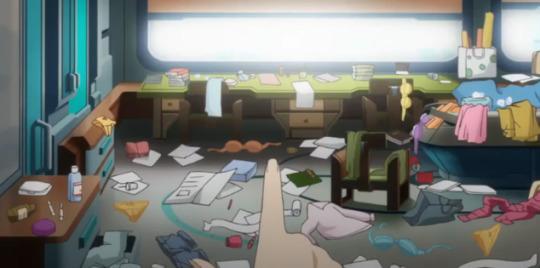
Now, you may be asking yourself. “How does a formerly comatose person who is now bedridden on an IV drip manage to do this much damage?” Simply put, Tsubasa has a very chaotic aura. She doesn’t even have to take stuff out of her room; the places she goes to just naturally wind up like this. It’s a metaphor for how much of an absolute mess this person is simply by existing.

“l-look i just- its hard to organize things and- im more of a visual person and-”

“BITCH YOU LIVE LIKE THIS?”

Hibiki unwittingly gets her revenge on Tsubasa. She doesn’t realize it, but her lecturing Tsubasa on what an absolute mess every facet of her life is could possibly be heralded as her lowest point in the entire series.
No, wait. Thinking about it now, this is her second lowest. We won’t see her lowest until GX comes along.

“hibiki, every single bone in my body is broken, you dont have to break my pride too”
Hibiki, being an absolute darling, actually picks up Tsubasa’s mess. This is more than she can say about her own messes.

“haha, miku usually does this for me! wait- wait a minute.”

“i dont get it. i tried to kill you. i tormented and ignored you. i refused to help you for months. i failed to train you on any facet of combat as your senior. i nearly let you get kidnapped and, failing that, nearly killed myself while making you watch, which ALSO didnt help you not get kidnapped aside from scaring the shit out of that weird lady. why are you... helping me?”

“because either we’re going to be very good friends or im going to toss you out the window personally!”

“oh god, that aggression screams kanade. i cant not like her.”


Absolutely annihilated. Just kick her while she’s down in her Taco Bell spiral of humiliation and self-discovery, Hibiki.

“it’s okay, tsubasa! you may be a terminal dumbass, but im sure if we all work together, we can share our braincells and become collectively smarter, for each other!”

“interesting theory. how many ya got?”

“ZERO!”
They trade the kind of banter two people with 0 brain cells would have and then Tsubasa points out Hibiki is doing a great job in her place.

“hey hey HEY HOLD THE PHONE IVE LEARNED MY LESSON IM NOT TRYING TO REPLACE YOU OKAY IM NOT YOU, IM JUST HIBIKI, DOING HER JOB, ALRIGHT”
Meanwhile, in the library, Miku is looking at books, as she does what she says she’s gonna do, unlike a certain other person cavorting with cute idols.

“The Gay Way: How to Get Your Same Sex Relationship Back On Track, by Dr. Lesbe Honest. wow, this one is right up my alley.”

Okay, I’m gonna be honest with you. I literally forgot they show you the title in this. Imagine my face when I made up that title on the spot only to be hit with this little number. Holy shit, Symphogear. There’s this thing called subtlety. I’m begging you. We get it.
OH, AND IT GETS BETTER, BECAUSE

THE AUTHOR OF THE BOOK IS THE WRITER OF THE SHOW
IT’S LITERALLY GOT HIS NAME ON IT
THIS IS THE EQUIVALENT OF WRITING A STORY AND THEN INSERTING A BOOK CALLED “LEARN THE PLOT” WRITTEN BY YOU, IN UNIVERSE
KANEKO STOP THIS BALONEY, PLEASE

AND LIKE FUCKING CLOCKWORK SHE JUST- SHE TURNS HER HEAD AWAY FROM THE BOOK TITLED “THIS IS THE PLOT MOTIF” BY “AUTHOR” AND THEN FUCKING

SHE CONVENIENTLY LOOKS OVER TO THE DISTANCE

AND SHE SEES HIBIKI WITH THE HOT IDOL MIKU WAS INTO, THAT THEY WERE BOTH A FAN ON, AND SHE’S JUST CHILLING THERE AND MIKU WAS TOLD HIBIKI’S ON SERIOUS BUSINESS

AND THE HOSPITAL QUARTERS ARE SOMEHOW CONVENIENTLY CONNECTED TO THE FUCKING LIBRARY ON FULL DISPLAY BECAUSE GOD KNOWS EVERYONE IN A LIBRARY HAS TO WATCH SICK PEOPLE DIE IN REAL TIME
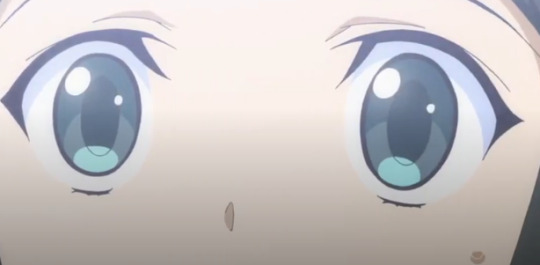
AND NOW MIKU IS THINKING “OH MY FUCKING GOD IM BEING CHEATED ON” AND HER FEELINGS ARE HURT FOR THIS TOTALLY CONTRIVED FUCKING COINCIDENCE

AND SHE’S ALL “BOO HOO HOO I’VE BEEN NTR’D! THIS WAS A CUCKING PLOT THIS WHOLE TIME! WOE IS ME!” FUCK YOU. THIS IS THE WORST. THIS IS ABSOLUTE GARBAGE WHY WOULD YOU- WHY DO YOU EVEN NEED TO SET THIS UP? THERE’S SO MANY BETTER WAYS TO DO THIS!

AND SHE’S JUST STARING BACK AT THE BOOK WRITTEN BY THE SAME ASSHOLE WHO WROTE THIS ENTIRE DAMN SCENARIO IN THE FIRST PLACE, AN EVIL GOD MOCKING HIS SUBJECTS IN THE FACE OF SCRUTINY FOR DRAMA WITH THE MOST CLICHE LOVE NOTES IN A GODDAMNED SOAP OPERA

AND HIBIKI IS NONE
THE
FUCKING
WISER
SYMPHOGEAR SURE IS GREAT, HUH? I SURE DO LOVE SYMPHOGEAR WITH ALLLLLL MY HEART. WHAT A WELL WRITTEN MASTERPIECE! FUCKING BELONGS IN THE FUCKING MOMA!!!!!
Okay. Okay. Let’s get that out of our system. The worst is over. This is the, uh, crescendo of the bad side plot as it inevitably sets itself on the road to resolution. I’m not going to have an aneurysm. My brain is not going to split itself in half. We’re good. I swear, we’re good.

Tsubasa, meanwhile, wants to understand why Hibiki fights, wrestling with the Da Vinci code that is her own emotions. She points out the fight against the Noise isn’t a game, and it ain’t no comic book bullshit either. It’s real, it’s out there, and it’s not pretty yet easily marketable as cute mascots. And what does our protagonist say? No making it up, she literally says:

“i dunno”
Not a damn brain cell in her body, but props for keeping it real. I’d likely say the same thing.

This is the face of someone currently sucking air through their teeth at the raw frustration that someone would be dumb enough to risk their life for the sake of only helping others.

“listen. im gonna keep it real here. i suck at literally everything. math. social studies. writing. helping people is all i have, because its not a competition. you just... you do it. you dont get better at helping people, you just help. like, thats it. i dunno what else to tell you.”

Then Hibiki points out that she feels it all started with Kanade saving her, and the speech implies its a ‘pay it forward’ sort of affair. She was saved, and so she should save others. Unfortunately, it comes off more as a guilt complex. “I lived, and I feel bad about that, so I gotta save everyone else” kind of stuff.

“its my coping mechanism for my countless traumas!”

“i get it now. you’re just as much of a mess as i am. you just dont show it as much. that kinda thinking’s gonna get you killed.”
Tsubasa then correctly points out that it is a kind of survivor’s guilt, where she wants to be released from the pain of old wounds, completely unaware of the irony of her statement.

“yeah. i get ya. we’re both wrecks. but... we can be wrecks working together.”
This would be the part where she says I’M SORRY but apparently we just don’t fucking do apologies in Symphogear, huh? Too good for ‘em, eh?! God.

Then they go outside and talk more about stuff and Durandal. The summation:

“do you have the capacity to live a life forever kicking ass?”

“yeah”
Hibiki, coming to terms with how she wants to deal with shit, manages to sharpen (haw) her resolve as to who she is and how she uses her abilities.
Meanwhile...

youtube

“i cant believe hibiki is having an affair with an attractive idol popstar. especially my favorite one from their old band. not only is she cheating on me, but she’s cheating on me from one of the five people on my lists id immediately get with if i had the chance. it feels like a double betrayal. a real life one, and a fantasy one... why do i find this weirdly hot...?”
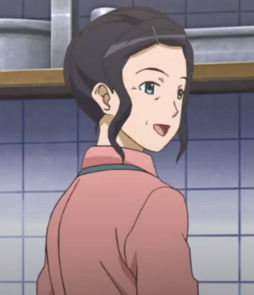
“HEY NEWCOMER WELCOME TO THE CUCK AND BUCK WHERE WE SELL FRESHLY FRIED CUCKS FOR ONE BUCK, REAL EASY, REAL CHEAP, GOOD OL’ FASHIONED JAPANESE SOULFOOD”

“ive come to take my throne. i’ll take the ‘one flew over the cuckoo’s nest” and have the three eggs over easy with the ‘easy sleazy pancakes’”

“make it an extra lonely helping. this is gonna be a long afternoon.”

“ahhh. a freshly cucked newcomer coming to the cuck and buck to duck amongst their bad luck run amok, huh?”

“listen dont sass me about my busy girlfriend with your dr. seuss antics just gimmie the food and lets get this over with”

“no problem! sorry, they just come easy. it’s hard to buck at the cuck and buck when rhymes you huck make you wanna fu-”

“FOOD. NOW.”
Miku then ponders about how her feelings may have spiraled from a process of over thinking, or possibly hunger. Maybe both. Maybe Hibiki isn’t cheating on her. Maybe the reasons are more complicated than she knows. She briefly contemplates communication; a futile gesture when it is Hibiki safeguarding a secret she is forced to keep for incredibly stupid reasons.

“thanks for the food, miss. it really helped sort my feelings out.”
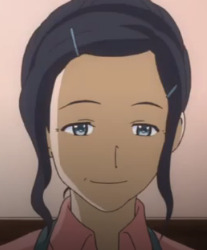
“no probs, kid. here at the cuck and buck, the only thing we cuck here is... our hearts.”
Meanwhile, Hibiki is still hanging with Tsubasa. Hey, if you’re gonna hang out with a critically acclaimed popstar, might as well squeeze every minute out of it, right?

“so... taco bell, huh? im surprised you actually like taco bell now. maybe you just like fast food styled psuedo-mexican restraunts? have you tried chipotle?”

“i... maybe you’re right, actually. i’ve grown to love taco bell, but... maybe i should expand my horizons. kanade did say... singing makes you hungry. maybe thats what she meant. i should take to new life experiences...”

“yeah! i can take you to all the good fast food places i know!”

“dont you have a girlfriend?”

“she can join us! she’s a big fan of you after all!”

“hey- hey wait! m- more friends? more... more friends... more friends.....”

“more friends...”
Meanwhile, a crisis develops.

Chris, having heard the f-word (friendship), is heading immediately to do the exact opposite of this.
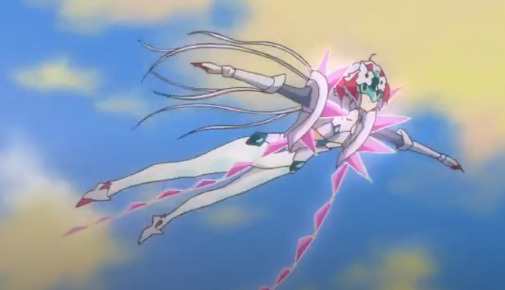

She’s taken some pointers from Tsubasa, t-posing to assert dominance.
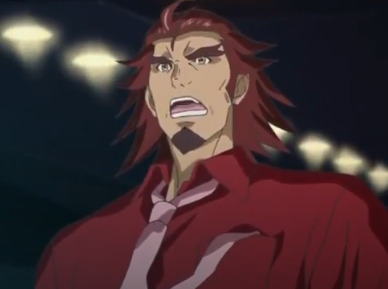
“how the fuck is she even flying”

“i cant wait to tell hibiki how much i love and appreciate her despite the weird NTR aura surrounding this whole situation”

“yeah, that’s right! i’m meeting the Gremlin in the park for an asskicking, don’t worry!”

“oh, speak of the devil! hibiki! i love and appreciate you despite the weird ntr auras!”

“miku- wait. oh no. i saw this happen in sam reimi’s spiderman 3. im fucked.”
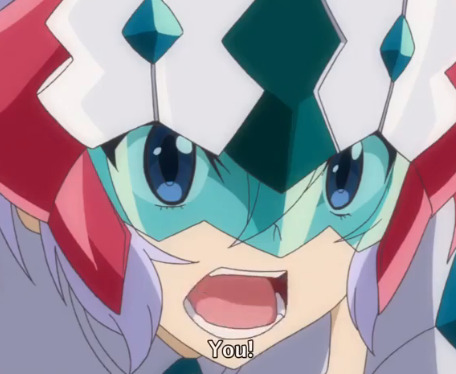
“YOU GUESSED CORRECTLY, PIDGEON BANGS”

I know I’ve joked about homewrecking, but this is ridiculous.
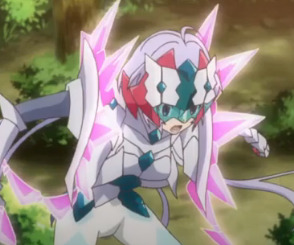
Chris realizes there’s someone else around she may have potentially hurt. This is surprising, given murder is not something she has shyed away from, but she’s slowly climbing that ladder of morality, so cut her some slack for taking it one rung at a time.

“im losing my girl. losing my grip. now im about to lose my life. this NTR business truly is the worst.”

Chris has accidentally employed the Dio Brando style of disposing of people, which consists of throwing a vehicle and smashing them until dead.

“you’ve taken one step too close to my heartstrings, Gremlin, and for that you’re about to understand the full definition of an ass kicking.”

Hibiki fucking punches the car. Everything is forgiven in this episode for now.

“i... hibiki... are you... a street fighter character? holy shit. oh my god. hibiki oh my god you’re a street fighter character. thats been the true problem here. you’re a street fighter character now. oh my god. cheating? how could i have thought cheating was involved? you were literally just becoming a straight up superhero! oh my god. the abs! the washboard abs! the signs were all around me! the only thing you went to do behind my back was kick ass!”

“i’m sorry. i need to go kick ass now.”

The good news is all that tension just got evaporated. Miku sorta gets the truth now: her girlfriend hasn’t been cheating on her, she’s just been trying to save the local tri-county area from the grips of inter-dimensional alien eldritch entities controlled by a Gremlin and her Mistress. It’s a lot to take in, though.

These two are about to fight head to head. Last time, Hibiki was but the pupil. Now, she is the Master.

“can’t touch me, goldie locks. lemme do you a favor and CRACK THAT WHIP!”

“oh my god hibiki’s gonna fight that weird looking person”

“naruto running deeper into the woods isn’t gonna stop me from beating your ass senseless, fists for brains”

“thats because i wanna talk, asshole”

“wait. wait, what? you... you want to talk? to me?”

Hibiki proceeds to aggressively describe herself to her. Name, identity, blood type, age, the works. This is because she’s trying to befriend her, because Hibiki feels fighting people is bad, and that talking is more useful than fighting. This is a recipe for suicide, normally, but in this instance...
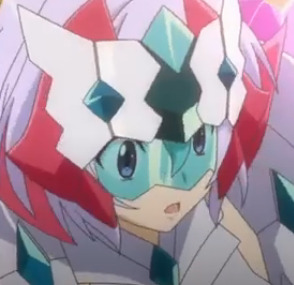
“what in the goddamn hell... i... um... nice.. to meet you...?”

Hibiki deploys a counter-T-Pose to show kinship, feeling that they don’t have to fight like this since they’re not Noise.
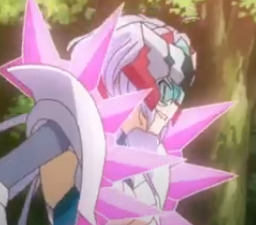
“talk may be cheap but it’ll make kicking your ass all the more easier, nerd”
Chris learns this, in fact, does not make the ass kicking all the more easier. Hibiki’s fresh new moves manage to dodge whip after whip of Chris’s attacks, and it’s really starting to annoy her a lot.

“pain in the ass. so you learned how to fight, huh? fine. you’ll tire out eventually.”

“let’s just talk, seriously! or maybe we can bond over board games-”
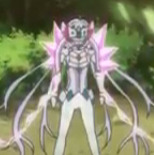
“i FUCKING hate board games. the fuck are you, a grandma? just fight already! people cant understand each other anyway!”
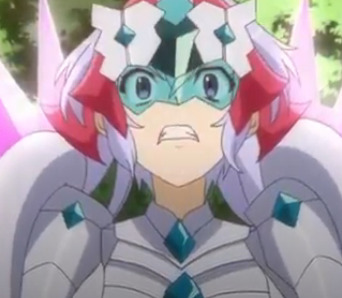
“JUST DIE ALREADY!”

“i was told to kidnap you. but im exerting a loophole today; no one told me to do it alive”

“the only kidnapping going down is me, sleeping in on a thursday afternoon forgetting class exists, you neon porcupine. so come at me. can’t kick me ass if you dont come any closer, right?”

“WITH PLEASURE!”

“ive watched the entirety of dragonball z, i know exactly how this fight’s gonna go down”
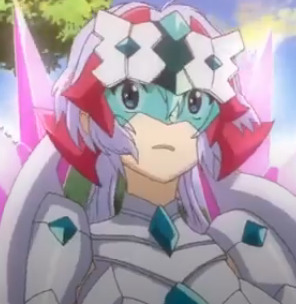
“finally. looks like i got y- hey, wait, what?”

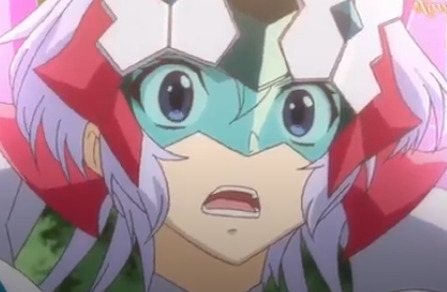
“ARE YOU ABSOLUTELY JANKING MY LEG? THIS BITCH IS LITERALLY GOKU? PULLING KAMEHAMEHAS AND SHIT? WHY? god. its me. yukine chris. why do you hate me. why do you drag me through all this shit only to be hit in the head with some real anime baloney. why. please. have some mercy.”

“i dont know what a goku is but sure, yeah, why not”
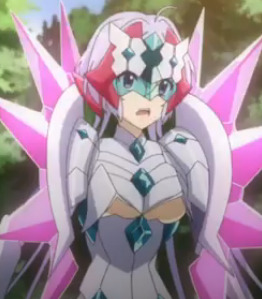
“im going to kill her. oh my god. she doesnt even know who goku is.”

“get that tentacle shit away from me. im not fucking around anymore. we’re going to have a heart to heart whether you like it or not!”

“oh shit she found my weakness. really close melee combat.”

“MADE A FRIENDSHIP GIFT FOR YA. IT’S A FRESHLY MADE KNUCKLE SANDWICH, STRAIGHT FROM THE DELI”
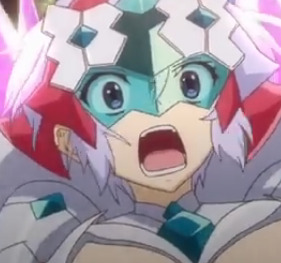
“OH GOD, PLEASE, NOT MY FACE”

“REQUEST ACCEPTED, PAL”

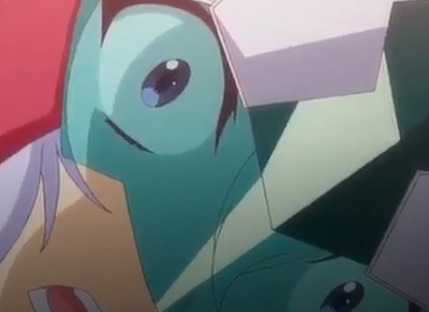
Hibiki punched her so hard that she physically destroyed the entire armor Chris was wearing in a single blow.


“she... she doesnt punch ME like that... i mean, probably because she loves me, but..”

“did... did she just kill that person...? hibiki...? you, uh... you alright...?”
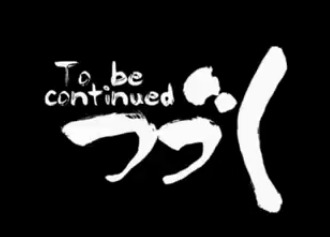
38 notes
·
View notes
Text
Short Reflection: Princess Mononoke
One of the many delights of watching all the Studio Ghibli films chronologically is being able to see how its output evolves over time. I get to observe the storytelling trends and driving ethoses that grew and changed in the belly of creation that is the most acclaimed anime studio on the planet, how each new step forward is informed by everything that’s come before. But nowhere has that sense of lineage been clearer than with Princess Mononoke, which has Miyazaki turning the clock all the way back to the very first films that jump-started this incredible animation house: Nausicaa of the Valley of the Wind, and Castle in the Sky. These three films are spiritual sisters, sharing many of the same themes, characters, and story beats in order to convey very similar messages, but differing in the particulars of how that message is conveyed. They center around man and nature living side-by-side and in conflict, showing the difficulties and dangers that come with industrial evolution and preaching for progress that doesn’t destroy the wilderness in its wake. Our heroes are a determined young boy and a spirited young girl with an affinity for nature, who must set off on a quest to bring peace between various warring factions less their mutual bloodshed bring disaster to the entire world. The main antagonist seeks an incredible source of power that would allow them to rule the world, not realizing that said power is so inherently destructive that it can only bring ruin to all whenever it’s used. And everything comes crashing together for a shock-and-awe final spectacle that sees the world thrown out of balance, only for the heroism of the spiritual young girl to set it right again and restore peace to the angered embodiment of nature the villain’s scheming inadvertently awoke. It’s the same thesis statement, told three different ways with three different driving principles and- thankfully- just as enrapturing and riveting every single time. That’s the mark of a true master; Miyazaki can say the same thing over and over again, and I never get tired of listening to him.
Now, if Nausicaa was Miyazaki’s Lord of the Rings, a sprawling epic with a massive world waiting to be explored, and Castle in the Sky was his Indiana Jones, a rollicking adventure through a series of pulpy, charming setpieces, then Princess Mononoke is, without question, the master’s Game of Thrones. Whereas his previous two examples were family films first and foremost, Mononoke is a bloodstained, brutal, punishing trial that implements the formula with a gristly paintbrush made from pulsating pig’s guts. It’s more violent, it’s more brooding, it’s more morally complex, and it’s more beautiful. It’s no wonder that of the three, this is the one that ended up as Miyazaki’s second-most definitive blockbuster; it’s built from the ground up to feel as large and important as possible, a towering spectacle of animation with shocking, sear-its-way-into-your-brain imagery and a sense of grandeur as tall as the colossal Night Walker. This movie is freaking HUGE. That said, I don’t think that vastness makes it inherently any better than either Nausicaa or Laputa. It’s still just one more iteration on the same theme, told with another new angle. But considering how much I loved those other two films, that shouldn’t be taken as a criticism. More than anything, Princess Mononoke feels like Miyazaki, now secure in his status as a true master of his craft, going back to the stories that started him off and giving them a hyper-charged, turn-of-the-millennium glow-up to knock a new generation of moviegoers flat on their asses. And it’s just as fantastic now as it was then.
At any rate, the specifics of the Miyazaki Movie this time center around a world that was once home to a bounty of nature spirits and gods, before human’s progress started pushing them further and further to the brink of extinction. As they continue to lose ground, the hatred and helplessness has begun infecting them in the form of a black curse that turns them into rage-fueled demons, filled with the simple desire to destroy humanity in retribution for all the damage they’ve caused. Ashitaka, a young prince of a rural tribe, is infected while fighting one such demon, and he sets off on a journey following its trail to the source in hopes of finding some power that can cleanse him before he dies. Once he gets there, though, he becomes embroiled in a massive conflict between countless competing factions of man and beast, each trying to assert their dominance over the others and carve out a space where they alone can survive. It’s a bloody, brutal scrum, but Ashitaka throws himself into the thick of it regardless, trying to broker a peace so that mankind and the forest animals can finally learn to live side by side and stop the spread of black hatred that threatens to consume them all. Oh, and one of those factions includes San, a human girl who was raised by wolves and now considers herself a wolf instead of a human, fighting for their side and holding a deep loathing for humankind. She’s the titular princess, and she’s... there?
Yeah, if there’s one significant weakness to Princess Mononoke that prevents me from considering it the perfect masterpiece that so many others see it as, it’s that its title character is nowhere near as interesting or integral as previous iteration of the naturalist Ghibli girl. Both Nausicaa and Sheeta were the centers around which their entire stories revolved, their passion for nature and desire for peace forming the backbone of the entire narrative. San, by contrast, feels like just one more player on a battlefield littered with players. Which isn’t inherently the wrong choice; after all, this classic Ghibli template is as much an ensemble cast as it is a character focus, and unsurprisingly, the ensemble here is equally fantastic. Because both man and beast are essential players on this battlefield, we get a chance to hang out with spiritual wolves, boars, and even gorillas, and their interactions all capture the fascinating, rich mystique of ancient beings with almost alien ways of looking at the world and their place in it. It’s the kind of story where you can’t help but want everyone, even the villains, to make it out okay in the end, because everyone has an understandable motive for wanting their people to be safe and prosperous, even if their method of achieving that goal ends up causing pain for those not under their care. But still, considering the pedigree that San has to live up to, it’s frustrating that she ends up having so little agency over her own narrative, taking a backseat to Ashitaka and his demon curse when she should rightfully be as prominent in driving this story’s narrative as she is on the front lines of its many brutal battles.
But speaking of those battles, holy shit was I not ready for just how violent this movie was going to get. In staking out its unique identity, Princess Mononoke takes the subtle brutality and danger that underpinned its sisters and blows it up to a full-throttle war epic. Epic clashes of man and beats are punctuated with visceral, gut-wrenching violence, spatters of blood and limbs that drive home the chaos and futility that their mutual hatred brings. Heads are lopped off, arms are chopped off, thick gashes in hide ooze thicker red, bloody stumps of bone are an unnervingly common sight, the wounded spit out blood and vomit and pus, and when the black demons of rage begin to take over someone, their flesh writhes and convulses and bloats like it’s about to explode from the inside, only to erupt in geysers of wriggling, tar-like leeches that envelop them like a cascading sea of living blackness. It lays raw the messy, dirty, foul truth at the heart of war, casting its violence in the same kind of light as the likes of Saving Private Ryan and All Quiet on the Western Front. It truly seeks to challenge its audience, to ask them to accept the full weight of the pain these people are inflicting upon each other and understand why they need to be stopped. Despite moments of levity, this is far from a fun movie; it’s intense, unflinching, occasionally unsettling, and full of moments of dread and horror so visceral you want to turn away from the screen.
And yet, you can never look away. Because beyond the bloodshed and death, Princess Mononoke is by far Miyazaki’s most beautiful film yet. It’s rich and earthy, grounded in the foliage and grit of its environment like a thick forest of tactile sensation, yet it’s also ethereal and mystical as the forest spirits Ashitaka comes across during his travels. It carries an indelible sense of wonder and awe in the majesty of its stunning background art, the ponderous movement of its massive, ancient animals, the fey capriciousness of the masked woodland sprites that chatter amid the margins. And as deeply unsettling as the battles can be, they’re also stunning to watch unfold, grand armies of grander creatures rushing over each other like the waves of nature’s wrathful sea. It’s a movie that feels as deep and ancient as an elderly redwood tree, towering over the landscape as if it’s been there forever and paying witness to the chaos unfolding far below. It’s steeped in history and mystery, with a deep and abiding love for the beauty of nature that puts even its sisters to shame. It makes the wilderness feel as eternal and alive and stunning and majestic in its savagery and stillness alike as humanely possible, and by the time that final act rolls around and the spirits have all been let loose, there’s no possible reaction other than letting your jaw drop and watching this tidal wave of raw cinematic power wash over. It’s every bit the equal of Nausicaa’s legendary finale, maybe even more so for the improvements in animation technology.
Princess Mononoke is a huge movie from start to finish, updating Miyazaki’s well-worn fixations and beliefs for the biggest canvas they’ve yet to stand on. It’s sprawling and stunning and visceral and overwhelming and it demands your attention every step of the way. With this film, Miyazaki officially makes his mark on the modern world, proving he can tell the same stories he’s always been telling and still make them just as unendingly riveting as always. Bloody, brainy, and stunningly beautiful, this is a fantasy epic for the history books. And I award it a score of:
9/10
And that’s another Miyazaki Monday finished! Next time, I swing to the far end of the spectrum and tackle a low-key Ghibli film that even Ghibli fans often forget exists. See you then!
#anime#the anime binge-watcher#tabw#princess mononoke#mononoke hime#hayao miyazaki#ghibli#studio ghibli#ghibli sr
24 notes
·
View notes
Link
The Entire Article Under The Cut
Game of Thrones, in its eighth and final season, is as big as television gets these days. More than 17 million people watched the season’s opening. Judging by the fan and critic reaction though, it seems that a substantial portion of those millions are loathing the season. Indeed, most of the reviews and fan discussions seem to be pondering where the acclaimed series went wrong, with many theories on exactly why it went downhill.
The show did indeed take a turn for the worse, but the reasons for that downturn go way deeper than the usual suspects that have been identified (new and inferior writers, shortened season, too many plot holes). It’s not that these are incorrect, but they’re just superficial shifts. In fact, the souring of Game of Thrones exposes a fundamental shortcoming of our storytelling culture in general: we don’t really know how to tell sociological stories.
At its best, GOT was a beast as rare as a friendly dragon in King’s Landing: it was sociological and institutional storytelling in a medium dominated by the psychological and the individual. This structural storytelling era of the show lasted through the seasons when it was based on the novels by George R. R. Martin, who seemed to specialize in having characters evolve in response to the broader institutional settings, incentives and norms that surround them.
After the show ran ahead of the novels, however, it was taken over by powerful Hollywood showrunners David Benioff and D. B. Weiss. Some fans and critics have been assuming that the duo changed the narrative to fit Hollywood tropes or to speed things up, but that’s unlikely. In fact, they probably stuck to the narrative points that were given to them, if only in outline form, by the original author. What they did is something different, but in many ways more fundamental: Benioff and Weiss steer the narrative lane away from the sociological and shifted to the psychological. That’s the main, and often only, way Hollywood and most television writers tell stories.
This is an important shift to dissect because whether we tell our stories primarily from a sociological or psychological point of view has great consequences for how we deal with our world and the problems we encounter.
I encounter this shortcoming a lot in my own area of writing—technology and society. Our inability to understand and tell sociological stories is one of the key reasons we’re struggling with how to respond to the historic technological transition we’re currently experiencing with digital technology and machine intelligence—but more on all that later. Let’s first go over what happened to Game of Thrones.
WHAT STORYTELLING IT WAS AND WHAT IT BECAME IN GOT
It’s easy to miss this fundamental narrative lane change and blame the series’ downturn on plain old bad writing by Benioff and Weiss—partly because they are genuinely bad at it. They didn’t just switch the explanatory dynamics of the story, they did a terrible job in the new lane as well.
One could, for example, easily focus on the abundance of plot holes. The dragons, for example seem to switch between comic-book indestructible to vulnerable from one episode to another. And it was hard to keep a straight face when Jaime Lannister ended up on a tiny cove along a vast, vast shoreline at the exact moment the villain Euron Greyjoy swam to that very point from his sinking ship to confront him. How convenient!
Similarly, character arcs meticulously drawn over many seasons seem to have been abandoned on a whim, turning the players into caricatures instead of personalities. Brienne of Tarth seems to exist for no reason, for example; Tyrion Lannister is all of a sudden turned into a murderous snitch while also losing all his intellectual gifts (he hasn’t made a single correct decision the entire season). And who knows what on earth is up with Bran Stark, except that he seems to be kept on as some sort of extra Stark?
But all that is surface stuff. Even if the new season had managed to minimize plot holes and avoid clunky coincidences and a clumsy Arya ex machina as a storytelling device, they couldn’t persist in the narrative lane of the past seasons. For Benioff and Weiss, trying to continue what Game of Thrones had set out to do, tell a compelling sociological story, would be like trying to eat melting ice cream with a fork. Hollywood mostly knows how to tell psychological, individualized stories. They do not have the right tools for sociological stories, nor do they even seem to understand the job.
To understand the narrative lane shift, let’s go back to a key question: Why did so many love Game of Thrones in the first place? What makes it stand out from so many other shows during an era critics call the Second Golden Age of Television because there are so many high-quality productions out there?
The initial fan interest and ensuing loyalty wasn’t just about the brilliant acting and superb cinematography, sound, editing and directing. None of those are that unique to GOT, and all of them remain excellent through this otherwise terrible last season.
One clue is clearly the show’s willingness to kill off major characters, early and often, without losing the thread of the story. TV shows that travel in the psychological lane rarely do that because they depend on viewers identifying with the characters and becoming invested in them to carry the story, rather than looking at the bigger picture of the society, institutions and norms that we interact with and which shape us. They can’t just kill major characters because those are the key tools with which they’re building the story and using as hooks to hold viewers.
In contrast, Game of Thrones killed Ned Stark abruptly at the end of the first season, after building the whole season and, by implication, the entire series around him. The second season developed a replacement Stark heir, which appeared like a more traditional continuation of the narrative. The third season, however, had him and his pregnant wife murdered in a particularly bloody way. And so it went. The story moved on; many characters did not.
The appeal of a show that routinely kills major characters signals a different kind of storytelling, where a single charismatic and/or powerful individual, along with his or her internal dynamics, doesn’t carry the whole narrative and explanatory burden. Given the dearth of such narratives in fiction and in TV, this approach clearly resonated with a large fan base that latched on to the show.
In sociological storytelling, the characters have personal stories and agency, of course, but those are also greatly shaped by institutions and events around them. The incentives for characters’ behavior come noticeably from these external forces, too, and even strongly influence their inner life.
People then fit their internal narrative to align with their incentives, justifying and rationalizing their behavior along the way. (Thus the famous Upton Sinclair quip: “It is difficult to get a man to understand something, when his salary depends upon his not understanding it.”)
The overly personal mode of storytelling or analysis leaves us bereft of deeper comprehension of events and history. Understanding Hitler’s personality alone will not tell us much about rise of fascism, for example. Not that it didn’t matter, but a different demagogue would probably have appeared to take his place in Germany in between the two bloody world wars in the 20th century. Hence, the answer to “would you kill baby Hitler?,” sometimes presented as an ethical time-travel challenge, should be “no,” because it would very likely not matter much. It is not a true dilemma.
We also have a bias for the individual as the locus of agency in interpreting our own everyday life and the behavior of others. We tend to seek internal, psychological explanations for the behavior of those around us while making situational excuses for our own. This is such a common way of looking at the world that social psychologists have a word for it: the fundamental attribution error.
When someone wrongs us, we tend to think they are evil, misguided or selfish: a personalized explanation. But when we misbehave, we are better at recognizing the external pressures on us that shape our actions: a situational understanding. If you snap at a coworker, for example, you may rationalize your behavior by remembering that you had difficulty sleeping last night and had financial struggles this month. You’re not evil, just stressed! The coworker who snaps at you, however, is more likely to be interpreted as a jerk, without going through the same kind of rationalization. This is convenient for our peace of mind, and fits with our domain of knowledge, too. We know what pressures us, but not necessarily others.
That tension between internal stories and desires, psychology and external pressures, institutions, norms and events was exactly what Game of Thrones showed us for many of its characters, creating rich tapestries of psychology but also behavior that was neither saintly nor fully evil at any one point. It was something more than that: you could understand why even the characters undertaking evil acts were doing what they did, how their good intentions got subverted, and how incentives structured behavior. The complexity made it much richer than a simplistic morality tale, where unadulterated good fights with evil.
The hallmark of sociological storytelling is if it can encourage us to put ourselves in the place of any character, not just the main hero/heroine, and imagine ourselves making similar choices. “Yeah, I can see myself doing that under such circumstances” is a way into a broader, deeper understanding. It’s not just empathy: we of course empathize with victims and good people, not with evildoers.
But if we can better understand how and why characters make their choices, we can also think about how to structure our world that encourages better choices for everyone. The alternative is an often futile appeal to the better angels of our nature. It’s not that they don’t exist, but they exist along with baser and lesser motives. The question isn’t to identify the few angels but to make it easier for everyone to make the choices that, collectively, would lead us all to a better place.
Another example of sociological TV drama with a similarly enthusiastic fan following is David Simon’s The Wire, which followed the trajectory of a variety of actors in Baltimore, ranging from African-Americans in the impoverished and neglected inner city trying to survive, to police officers to journalists to unionized dock workers to city officials and teachers. That show, too, killed off its main characters regularly, without losing its audience. Interestingly, the star of each season was an institution more than a person. The second season, for example, focused on the demise of the unionized working class in the U.S.; the fourth highlighted schools; and the final season focused on the role of journalism and mass media.
Luckily for The Wire, creative control never shifted to the standard Hollywood narrative writers who would have given us individuals to root for or hate without being able to fully understand the circumstances that shape them. One thing that’s striking about The Wire is how one could understand all the characters, not just the good ones (and in fact, none of them were just good or bad). When that’s the case, you know you’re watching a sociological story.
WHY GOT PAUSED KILLING MAJOR CHARACTERS
Tellingly, season eight shocked many viewers by … not initially killing off the main characters. It was the first big indicator of their shift—that they were putting the weight of the story on the individual and abandoning the sociological. In that vein, they had fan-favorite characters pull off stunts we could root and cheer for, like Arya Stark killing the Night King in a somewhat improbable fashion.
For seven seasons, the show had focused on the sociology of what an external, otherized threat—such as the Night King, the Army of the Undead and the Winter to Come—would do to competing rivalries within the opposing camp. Having killed one of the main sociological tensions that had animated the whole series with one well-placed knife-stab, Benioff and Weiss then turned to ruining the other sociological tension: the story of the corruption of power.
This corruption of power was crucially illustrated in Cersei Lannister’s rise and evolution from victim (if a selfish one) to evil actor, and this was clearly meant also to be the story of her main challenger, Daenerys Targaryen. Dany had started out wanting to be the breaker of chains, with moral choices weighing heavily on her, and season by season, we have witnessed her, however reluctantly, being shaped by the tools that were available to her and that she embraced: war, dragons, fire.
Done right, it would have been a fascinating and dynamic story: rivals transforming into each other as they seek absolute power with murderous tools, one starting from a selfish perspective (her desire to have her children rule) and the other from an altruistic one (her desire to free slaves and captive people, of which she was once one).
The corruption of power is one of the most important psychosocial dynamics behind many important turning points in history, and in how the ills of society arise. In response, we have created elections, checks and balances, and laws and mechanisms that constrain the executive.
Destructive historical figures often believe that they must stay in power because it is they, and only they, who can lead the people—and that any alternative would be calamitous. Leaders tend to get isolated, become surrounded by sycophants and succumb easily to the human tendency to self-rationalize. There are several examples in history of a leader who starts in opposition with the best of intentions, like Dany, and ends up acting brutally and turning into a tyrant if they take power.
Told sociologically, Dany’s descent into a cruel mass-murderer would have been a strong and riveting story. Yet in the hands of two writers who do not understand how to advance the narrative in that lane, it became ridiculous. She attacks King’s Landing with Drogon, her dragon, and wins, with the bells of the city ringing in surrender. Then, suddenly, she goes on a rampage because, somehow, her tyrannical genes turn on.
Varys, the advisor who will die for trying to stop Dany, says to Tyrion that “every time a Targaryen is born, the gods toss a coin in the air and the world holds its breath to see how it will land.” That is straight-up and simplistic genetic determinism, rather than what we had been witnessing for the past seven seasons. Again, sociological stories don’t discount the personal, psychological and even the genetic, but the key point is that they are more than “coin tosses”—they are complex interactions with emergent consequences: the way the world actually works.
In interviews after that episode, Benioff and Weiss confess that they turned it into a spontaneous moment. Weiss says, “ I don’t think she decided ahead of time that she was going to do what she did. And then she sees the Red Keep, which is, to her, the home that her family built when they first came over to this country 300 years ago. It’s in that moment, on the walls of King’s Landing, when she’s looking at that symbol of everything that was taken from her, when she makes the decision to make this personal.”
Benioff and Weiss were almost certainly given the “Mad Queen” ending to Game of Thrones by the original writer, George R. R. Martin. For them, however, this was the eating-ice-cream-with-a-fork problem I mentioned above. They could keep the story, but not the storytelling method. They could only make it into a momentary turn that is part spontaneous psychology and part deterministic genetics.
WHY SOCIOLOGICAL STORYTELLING MATTERS
Whether done well or badly, the psychological/internal genre leaves us unable to understand and react to social change. Arguably, the dominance of the psychological and hero/antihero narrative is also the reason we are having such a difficult time dealing with the current historic technology transition. So this essay is more than about one TV show with dragons.
In my own area of research and writing, the impact of digital technology and machine intelligence on society, I encounter this obstacle all the time. There are a significant number of stories, books, narratives and journalistic accounts that focus on the personalities of key players such as Mark Zuckerberg, Sheryl Sandberg, Jack Dorsey and Jeff Bezos. Of course, their personalities matter, but only in the context of business models, technological advances, the political environment, (lack of) meaningful regulation, the existing economic and political forces that fuel wealth inequality and lack of accountability for powerful actors, geopolitical dynamics, societal characteristics and more.
It’s reasonable, for example, for a corporation to ponder who would be the best CEO or COO, but it’s not reasonable for us to expect that we could take any one of those actors and replace them with another person and get dramatically different results without changing the structures, incentives and forces that shape how they and their companies act in this world.
The preference for the individual and psychological narrative is understandable: the story is easier to tell as we gravitate toward identifying with the hero or hating the antihero, at the personal level. We are, after all, also persons!
In German playwright Bertolt Brecht’s classic play, Life of Galileo, Andrea, a former pupil of Galileo, visits him after he recants his seminal findings under pressure from the Catholic Church. Galileo gives Andrea his notebooks, asking him to spread the knowledge they contain. Andrea celebrates this, saying “unhappy is the land that breeds no hero.” Galileo corrects him: “Unhappy is the land that needs a hero.”
Well-run societies don’t need heroes, and the way to keep terrible impulses in check isn’t to dethrone antiheros and replace them with good people. Unfortunately, most of our storytelling—in fiction and also in mass media nonfiction—remains stuck in the hero/antihero narrative. It’s a pity Game of Thrones did not manage to conclude its last season in its original vein. In a historic moment that requires a lot of institution building and incentive changing (technological challenges, climate change, inequality and accountability) we need all the sociological imagination we can get, and fantasy dragons or not, it was nice to have a show that encouraged just that while it lasted.
7 notes
·
View notes
Text
What’s New In 2019: The Cartoons.
PART 2:
Separated by network. All premiere dates are estimated until confirmed. Timings are in EST.
DISNEY CHANNEL:
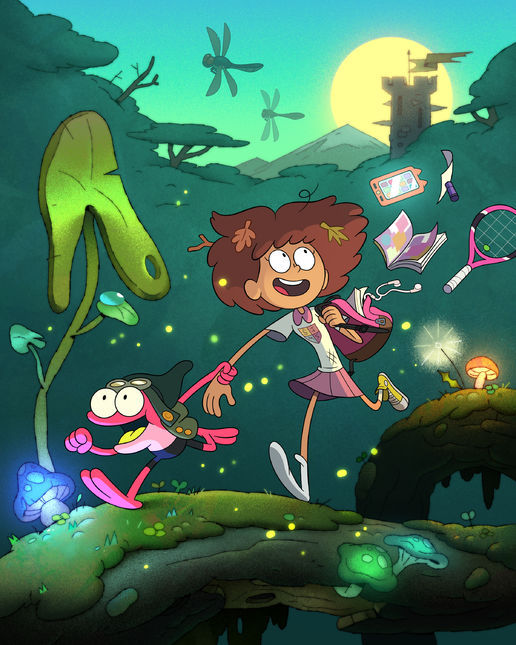
- Amphibia (TBA): Created and executive produced by Matt Braly (Gravity Falls), Amphibia chronicles the adventures of Anne Boonchuy, a self-centered 13-year-old who is magically transported to the fictitious world of Amphibia, a rural marshland full of frog-people. With the help of an excitable young frog named Sprig, Anne will transform into a hero and discover the first true friendship of her life.
The series was announced to be greenlit for production in early 2018 and is expected to premiere later in 2019.
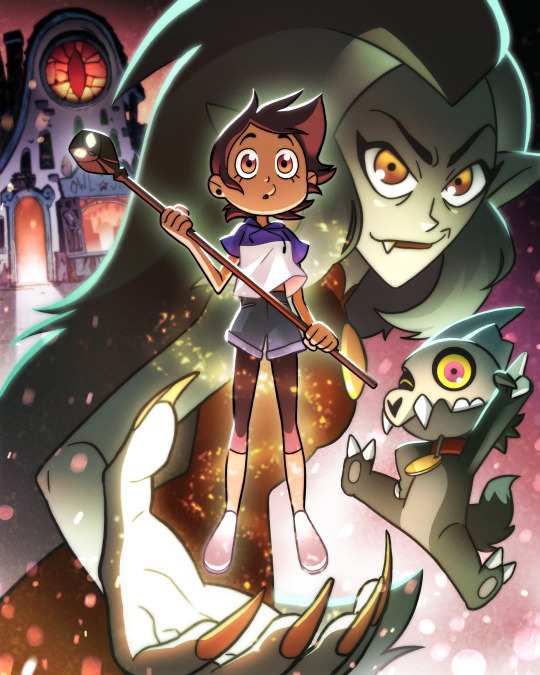
- The Owl House (TBA): Created and executive produced by Dana Terrace (DuckTales) is a horror-comedy series that follows Luz, a self-assured teenage human girl who accidentally stumbles upon a portal to the Demon Realm. There she befriends a rebellious witch, Eda, and an adorably tiny warrior, King. Despite not having magical abilities, Luz pursues her dream of becoming a witch by serving as Eda’s apprentice at the Owl House and ultimately finds a new family in an unlikely setting.
The series was announced at the same time as Amphibia and a Season 4 renewal of Star vs the Forces of Evil in early 2018. Similar to Amphibia, it is expected to release in late 2019.

- Vikingskool (end 2019): The series will follow a group of young would-be Viking warriors in an elite Vikingskool. Ross described the alumni as being “Like freshmen in ‘Top Gun,’ but for Vikings. ”The group will embark on a series of humorous and exciting adventures in a mystical world. At the heart of the tale are three best friends: Erik, Arnie and Ilba, each with their own unique Viking strengths and weaknesses.
The series is being produced by Ireland’s Cartoon Saloon (“The Secret of Kells,” “The Breadwinner”) and France’s Samka Productions (“Jamie’s Got Tentacles”) with post-production from Norwegian VFX company Storm Films. It’s this pedigree that prompted Ross to explain to Variety: “There is a substantial Viking history in Ireland and Northern France. As a co-production we can say it’s the only Viking show made by actual Vikings.”
The series’ 26 half-hours are scheduled for broadcast at the end of 2019.

- 101 Dalmatian Street (early 2019): Inspired by Dodie Smith’s 1956 novel and the 1961 movie, it will be based in Camden Town, London.
Featuring 43 cast members covering 106 speaking roles, the modern tale will focus on dalmatians Dylan and Dolly, their parents Doug and Delilah and 97 younger puppies whose names all also begin with D. Miriam Margolyes, known for her portrayal of Professor Sprout in the Harry Potter film series, will voice Bessie the Cornish Cow.American actors Josh Brener and Michaela Dietz will voice Dylan and Dolly, the eldest Dalmatian siblings. Rapper Ben Bailey Smith, also known as Doc Brown, will voice Sid Squirrel as well as Spencer Sausage Dog. The series will also feature EastEnders star Tameka Empson as Pearl Police Horse and Bethan Wright as Prunella Pug.
The series has premiered its first episode on Disney Channel Africa and is set to premiere on Disney Channel UK in January. It will premiere in the US in spring 2019.
NETFLIX:

- Pinky Malinky (January 1, 2019): Pinky Malinky is a brand-new fly-on-the-wall reality show that follows the everyday life of Pinky, an infectiously positive hot dog living in a human world. With his best friends Babs and JJ by his side, Pinky reaches for the stars in the small town of Sackenhack. Through his good spirits and sausage sensibilities, Pinky proves that a "wiener" is only one small letter away from being a "WINNER!"
Using the tropes of a mockumentary and reality show format, Pinky and his friends will talk directly to the camera and the audience to share their absurd and silly take on real life. At times, all children feel like they don't fit in and Pinky's undeniably unique point of view as a literal wiener amongst humans will allow kids to laugh at his familiar struggles and enjoy his unusual perspective on the challenges of being a school-aged kid. By always reaching for the stars, Pinky pushes himself further than anyone could imagine. Pinky and his friends' humorous experiences will also be shared across social media and Nickelodeon's digital platforms.
Co-created and co-executive produced by Chris Garbutt and Rikke Asbjoern (The Amazing World of Gumball) and executive produced by Scott Kreamer (Kung Fu Panda: Legends of Awesomeness), the trio are a part of the Artist Collective, an internal diverse group of experienced creators who mentor and support up-and-coming talent while also collaborating to cultivate, challenge and inspire Nickelodeon's development pipeline.
Pinky Malinky will star Lucas Grabeel (Glenn Martin DDS, I Kissed A Vampire) as Pinky Malinky, Diamond White (The Haunted Hathaways) as Babs Buttman, and Nathan Kress (iCarly) as JJ Jameson.
Under the deal with Netflix, Nickelodeon is producing two seasons — 59 episodes — of Pinky Malinky for the streaming service. The first season, consisting of 28 episodes is now available on Netflix.
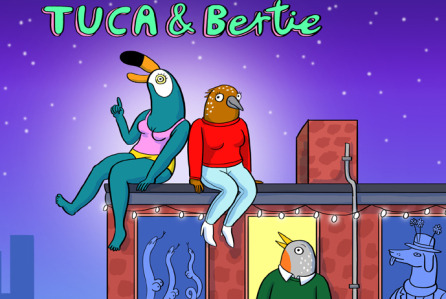
- Tuca & Bertie (TBA): The series, which has received a 10-episode order, is an adult-oriented comedy about the friendship between two 30-year-old bird women who live in the same apartment building: Tuca (Haddish), a cocky, care-free toucan, and Bertie (Wong), an anxious, daydreaming songbird.
Both Haddish and Wong will also serve as executive producers in addition to starring. Lisa Hanawalt created the series and will serve as executive producer. Hanawalt is the production designer and producer on Netflix’s critically-acclaimed animated series “BoJack Horseman.” Raphael Bob-Waksberg, the creator of “BoJack” will also executive produce along with “BoJack” executive producers Noel Bright and Steven A. Cohen. Michael Eisner’s The Tornante Company, which produces “BoJack,” will produce. Animation is being done at Shadowmachine.
The series was announced to be in production in February 2018 and is set to release in the summer.

- Carmen Sandiego (January 18, 2019): Carmen Sandiego started as a video game in 1985 and ventured out into books, television, and comics. Children of the ‘90s have searched for Sandiego in the U.S.A., in Europe, in Space, and back in Time. The PBS animated series Where In The World Is Carmen Sandiego? ran for 295 episodes between 1991 and 1995. Author John Peel wrote 10 Carmen Sandiego books in the '90s. DC Comics published four issues of a Carmen Sandiego comic starting in June 1996.
Believe it or not, after more than two decades Sandiego, a notorious crook, is still on the loose. Can she outrun the Netflix binge watchers? We’ll have see if Rodriguez has what it takes.
Insiders say that Netflix has ordered 20 episodes of the series, which aims to be as educational as it is entertaining, given the title character’s globetrotting adventures. The series is set to release on Netflix on January 18, 2019.
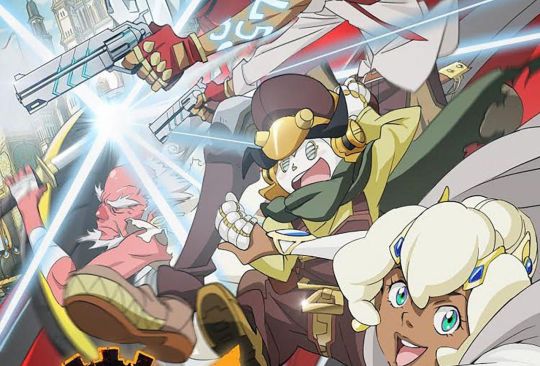
- Cannon Busters (March 1, 2019): Cannon Busters tells the story of a royal droid named S.A.M., who is searching for her best friend, and heir to the throne. Along the way, she’s joined by an old maintenance droid and a fugitive. The 12-episode series buy is part of Netflix’s impending wave of anime titles including Ultraman, Kengan Ashura, and season two of Aggretsuko.
Cannon Busters was created by LeSean Thomas, a storyboard artist and character designer known for his work on The Boondocks, the animated Black Dynamite series, and The Legend of Korra. Following a successful Kickstarter campaign, Netflix has bought 12 episodes, adapted from a 2003 comic of the same title.
The series was first announced at the Netflix panel at the 2018 Anime Expo and is set to release on Netflix on March 1, 2019.

- Twelve Forever (TBA): The series centers on 12-year-old Reggie, whose desire to remain a child is so powerful it creates a fantasy world in which she never has to grow up. She’s joined by her friends Todd and Esther, who visit this amazing world to live out their superhero fantasies and escape the responsibilities of impending adulthood.
Production companies behind the series are the Cartel and Puny Entertainment. In addition to Vickerman, executive producers include the Cartel’s Stan Spry and Bradford Bricken, and Puny’s Chris Hardwick and Shadi Petosky.
The original pilot was first aired on Cartoon Network in 2015 and was not picked up by the network until Netflix was announced to have picked it up for a first season in December 2017 and is set to release sometime in 2019.
So that’s the stuff you can expect from the major networks (and Netflix) in terms of animation this year. Which shows are you most excited to watch this year? Here’s to an amazing 2019 full of amazing cartoons.
For the upcoming cartoons on Cartoon Network and Nickelodeon, go check out Part 1.
#cartoons#disney#netflix#amphibia#the owl house#vikingskool#101 dalmations street#pinky malinky#tuca and bertie#carmen sandiego#cannon busters#twelve forever#2019#premieres
46 notes
·
View notes
Text
Last thoughts on Game of Thrones
(probably)
Now that the show is done, and GRRM will probably never finish Book 6, much less finish the series, what are we left with?
I’ve read the five books that are out. I haven’t read the Dunk and Egg stories or any of the “historical” material that GRRM and his enablers have put out. I loved the first book, liked the second and the third, and struggled through the fourth and the fifth. The series as a whole is okay. The show is one of my favorite shows.
My thought after reading A Storm of Swords was that GRRM had broken the narrative so hard (RW, Dany ruling in Essos, Stoneheart) that he had effectively written himself into a corner that he would be hard pressed to get out of. So far I have been proven right: not only has his writing pace slowed considerably but the narrative of the books themselves has ground to a halt. He has deconstructed the tropes of epic fantasy so thoroughly (and in some instances needlessly) that his characters are left to wander through increasingly bleak landscapes and environments with no plot to anchor them. This would, I suppose, work if GRRM was a prose stylist of enough skill to keep me interested regardless of the lack of a plot. Just look at The Essex Serpent by Sarah Perry to see how this can work. But he’s no Tolkien or Erikson, and we are far away from the Tower of Joy, one of the most stylistically rich passages of the first book.
I bring all this up for two reasons: to say (1) I don’t have the same attachment to these books that a lot of my fellow nerds do; and (2) to point out the textual difficulties involved in adapting this material.
(1) means I don’t care that the King of the Iron Islands sits on the Salt Throne instead of the Seastone Chair. I didn’t tally up the differences between the show and the books while I was watching. I was interested in the world and the characters but what I really wanted was good TV and a good story. I got those things.
(2) The show came out right after Book 5 was published. Was GRRM’s plan that he would stay ahead of the show since there would be at least five seasons directly adapting his books before the show got ahead of the books? Until he tells us, we’ll never know. We have since learned that GRRM was in regular consultation with the writers about the structure of the story after Book 5, so I would be very surprised if the major beats in Books 6 and 7 don’t look very similar to the major beats in the show. I’ll eat crow if I’m wrong!
I’ve been thinking about this show in two different frames: 1) Prestige TV and 2) Epic Fantasy. I think these two frames help us understand, or at least help me understand, why the show developed the way that it did.
1) Prestige TV: After The Sopranos ended, HBO badly needed another critically acclaimed, watercooler show that would bring in the ratings. In that respect, Game of Thrones would allow HBO to live up to its original premise-- “it’s not TV! It’s HBO!” and create a show that simply would never air on network TV. Epic Fantasy! Boobs! Dragons! Direwolves! Classically trained British actors! Prestige TV also relies on shock value, and in this sense too the GoT narrative was perfect for HBO. But in another sense the budget GoT required as the narrative expanded and the scale broadened was an outlier; none of the other shows HBO is hyping now, not even His Dark Materials, require the kind of dollars GoT hoovered up (that might change in the third book of HDM). In that context I can see why things got more constrained for the show.
2) Epic Fantasy. But from another perspective I would argue that the accelerated narrative of the final two seasons actually works to the story’s advantage. I think of the show as a whole as a narrative in three parts.
Seasons 1-4 are Part One: we’re introduced to all the major players, the two major conflicts (the Iron Throne, the White Walkers) are set in motion, and then a series of deaths in S4 move most of the remaining players beyond Westeros.
5-6 are Part Two: Realignment. The surviving players try to pick up the pieces and create new identities for themselves. By the end of part two, Cersei is (seemingly) on one side and everyone else is on the other.
7-8, Part Three: Conclusion. With the battle lines drawn, all is action. There’s not as much intrigue and conversation because, well, the promise of violence between good guys and bad guys and worse things has to be fulfilled.
There are lots of people right now making parallels between GoT and some period in late medieval and early modern history, because the first book looks like the Wars of the Roses plus Mongols plus dragons, but to me that’s the wrong frame (not the least because GRRM got a lot of his history from weird sources). This is Epic Deconstructionist Fantasy in the modern, Tolkien-esque vein. What does that mean? A lot of modern fantasy falls into one of three categories:
1) Heroic Fantasy (where everything is basically okay at the end; nothing much changes: Harry Potter, Tad Williams)
2) Grimdark (the opposite: Joe Abercrombie, Mark Lawrence)
3) EDF (Tolkien, LeGuin, Zelazny, Erikson)
GRRM’s books are largely grimdark - for now. We don’t know how they’ll end. GRRM has teased for years that the seventh book will be nothing but the wind whistling over the graves of the main characters, but there is no way HBO was going to greenlight -that-. The show followed the grimdark trajectory throughout Part One and Two. But after S6 the show couldn’t go that route anymore. It could go Full Heroic Fantasy and crown Jon or Dany or both, or it could go the more interesting route and embrace the EDF narrative.
EDF requires that most conventions of the genre be upended and the world be changed substantially. Its endings are usually bittersweet. People we want to be good turn out to be bad, or at least messily human. Dany’s turn towards villainy echoes similar transformations in Tolkien and Keyes (The Kingdoms of Thorn and Bone). Jaime struggles with the better angels of his nature but loses out to his demons (and at the very least keeps Brienne out of King’s Landing) ala Boromir. Jon Snow reminded me profoundly of Ged at the end of The Farthest Shore: “he is done with doing.” Sansa and Arya are free to choose their own paths (like Corwin in Zelazny’s Amber), unburdened of the expectations placed upon them by the patriarchal system -- because with the election of Bran to the kingship, that system has been dealt a mortal blow! Power now rests with a bunch of up-jumped commoners (no, Tyrion and Brienne are not commoners, but they are outsiders in other ways). The ending reminded me of nothing so much as Lloyd Alexander’s The Beggar Queen: a new system is in place, but it might all come crashing down! Hence the ambiguity of Tyrion’s answer to Jon’s question: “ask me again in ten years.”
(also, back to point #1 about Prestige TV, if HBO decides to go back to the GoT well, they need the Starks alive and out of the Seven/Six kingdoms)
Those are my thoughts. The narrative started as a grimdark fantasy but ended as something significantly different, because its genre allowed for, if not demands, a bittersweet, non-heroic ending. And it worked. For me. It was certainly one of my favorite shows of the last several years.
3 notes
·
View notes
Link
What if the story of FX's Legion, created and scripted by TV writer (Fargo) and novelist (Before the Fall) Noah Hawley, is less about the story arc of the series itself and more the story about how and why it got made in the first place? Hawley had improbably turned the brilliant Coen Brothers movie, Fargo, into the acclaimed, separately realized vision of a TV series. So what if Legion was a lark from a prestige cable channel rewarding a very smart writer, and the extended generosity ends up being that Hawley, no fan of superheroes, wants to make a Marvel superhero story about mental illness rather than superpowers? And he also wants to mess with the notion that the hero in question has to be heroic at all.
I mean, if you're FX, with a long history of taking chances on exceptional talents, you probably say, "OK, sure, let's see what you come up with." Which is exactly the answer you want if you love television as a creative exploration rather than predictable, formulaic movement from episode to episode, season to season.
It would certainly explain the triptastic, visually stunning first season of Legion, which was basically a more coherent exploration of weirdness than Twin Peaks. And then the perception-changing second season (Jon Hamm as a narrator that didn't exist before!), which seemed intent on taking a Marvel vehicle (that will unlikely be tampered with again) and giving it a kind of Breaking Bad halo, disconcertingly telling its audience that the person at the center of the story, the hero they were rooting for, was in fact pretty awful.
How else to explain the fact that, by the end of that second season, anyone tuning in for a typical Marvel series was probably tuning out. Legion was seemingly moving from oddball project for Hawley into an experiment that wouldn't likely hold, given how busy he was and the inherent limitations of Marvel-centric superhero stories inside the mind of someone not particularly interested in those limitations or the expectations for that genre.
Translation: You probably wouldn't be too far off assuming, at the end of Legion season two, that Hawley's mindset was: "OK, that was a cool experiment but I'm over it." Of course, that assumption could be way off, and the third and final season of Legion was planned as the end all along (that's certainly the narrative) and all that's left is a pro forma wrap-up where the main character, David (Dan Stephens), course-corrects his Walter White excursion and the series closes with everybody doing the moral and ethical thing and putting the world right.
Sure, maybe, I don't know. I'd probably watch that.
But instead, what looks to be happening after last season's experimentation is that Hawley is once again having a blast reimagining a Marvel superhero show. He is tripling down on the visual gymnastics and mind-altering aspects, but with the kind of narrative focus that will culminate in a three-years-is-ideal big picture analysis, lovingly concluding that he got it all right, or at least right enough to be riveting.
I hope that's true, but without the full season to examine at length (eight total; I've seen four), who knows what will happen. But I'm loving the direction the third and final season of Legion is going in because the journey has been less about Marvel and more about Hawley and, given the television track record of each, I'll take the latter every time.
There's an unmistakable creative energy about each episode of the third season, as if Hawley, his writing staff and collection of directors all gathered around and said, "Let's go out on fire." I'd argue that the second season, which simultaneously seemed to annoy fans of the comic and fall short of satisfying some critics, did its job of upending the narrative built in season one. But it also perhaps had to come to terms with the fact that its weirdness was vast, like its stable of excellent actors, and if the third season was really going to be the end, some snipping would have to be done. It wasn't perfect but it was unfailingly creative, funny and risky, which is often more than enough to overcome quibbles.
Look, Legion was doing most things remarkably well — notably giving people like Aubrey Plaza, Navid Negahban, Bill Irwin and Jemaine Clement, to name a handful of random examples, room to explore and crush the acute weirdness of their characters in a way that few series ever do. (There are 10-minute scenes in every episode of Legion where I'd take just that and only that over a full episode of something else.) And while the work of Stevens' David and Rachel Keller's Syd is the no-doors, no-safety-belt rollercoaster car that fuels the Legion story, at least half the fun of the show is watching other actors run around the theme park with their hair on fire.
Which is to say, sure, if you really want to focus on the plotting, that can be your hill to die on. But all this other vigorous exploration of the mind's infinite possibilities (especially for a mutant) is pretty damned intriguing on its own.
I'm assuming but neither hoping nor demanding that Legion will end with a plot arc that feels satisfying. Season three could end with former hero David dying as the villain at the hands of new hero Syd, who saves the world. It could be David coming back from the depth of madness and harnessing his powers (whatever those really are) and there being some kind of interior peace for him. It could (and likely will) end... differently.
Viewers often come to the realization, after several seasons of a drama, that it's not the thing they'd hoped it would be. This is especially true for genre series like fantasy and sci-fi and superheroes. It seems as if more people should know when they sign up that their results may vary (spoiler: most don't know and thus are disappointed). But with Hawley's Legion, if you were expecting something predictable or literal, well, you weren't paying attention from the very first frame.
The journey is the joy here, and if you want yet another confirmation of that, watch the first episode of season three and look what director Andrew Stanton (all things Pixar) does with the material that Hawley and co-writer Nathaniel Halpern give him.
Season three adds David's real father, Charles Xavier (aka Professor X, leader of the X-Men), in the form of Harry Lloyd (Counterpart, Game of Thrones), and his mother Gabrielle in the form of Stephanie Corneliussen (Mr. Robot), who sheds some light on "The World's Angriest Boy In the World," plus an essential new character, Switch (Lauren Tsai), who is a time-traveler.
If the Professor X revelation pulls back in fans of the comic book or X-Men, it probably won't end well for them. Hawley doesn't seem to have particular interest in the franchise or superheroes in general, and was at least partially attracted to the idea so that he could portray mental illness in a different way — while also having a hell of a time with mind-bending visuals, tricky editing and now, in the final season, hallucinatory drugs adding to the fugue state effect.
Maybe, as someone not particularly interested (fine, not at all interested) in X-Men stuff, I fall into that weird subset where Legion is the perfect series. I just go with what's on the screen, revel in the conceptual ideas and applaud the acting turns, willingly negligent about Marvel-universe connections and never expecting — as others seem to be demanding — that this show, of all shows, be more concise, more linear, more understandable.
Cast: Dan Stevens, Rachel Keller, Aubrey Plaza, Jean Smart, Jeremie Harris, Bill Irwin, Amber Midthunder, Jemaine Clement, Hamish Linklater, Navid Negahban, Lauren Tsai, Harry Lloyd, Stephanie Corneliussen
Created and written by: Noah Hawley
First episode directed by: Andrew Stanton
Premieres June 24, 10 p.m. FX
If I had to pick one single sentence from this review to summarize my current admittedly tortured state of mind regarding this show, it’s this: “Viewers often come to the realization, after several seasons of a drama, that it's not the thing they'd hoped it would be. “ But there are those who already knew this about Yours Truly, whether they needed to or not! 😏 (Also love the unwritten “I’m looking at you, fans of Game of Thrones!”-implications here, lol)
1 note
·
View note